Keep 1.5oC alive Trade unions lobby COP27 in Egypt. See page 25.

Coastal poverty Deprivation in seaside towns. See page 26.
Sustainable schools Aiming for zero carbon footprint. See page 30.
Your magazine from the National Education Union
January/ February 2023
we don’t pay teachers, we can’t
students.”
Sixth forms strike “If
upskill



I HOPE you’ve enjoyed a well-deserved and restful Christmas break. And I hope you’ve voted already in our ballot for a fully funded, above-inflation pay rise.
Our dispute is about pay and it is about funding. But it’s also about the dignity of our profession and the quality of education.
This is about being able to pay the bills, your mortgage or the rent. About not having to work in a bar after school to make ends meet. When you’re a teacher you have enough on your plate already.
Teachers and support staff are already leaving the profession in droves. We know part of the picture is about pay not meeting the cost of living.

And if we haven’t got the necessary teachers or support staff then education suffers. Head teachers are finding it increasingly difficult to fill posts. The quality of education for the next generation is suffering as a result.

Just like NHS workers, you worked hard during the Covid pandemic. And we are proud to be supporting nurses and others on strike in the NHS. If you were clapping for NHS staff during Covid then you should be supporting them on their picket lines today.
And if health workers can vote for a pay strike, then why shouldn’t education workers too?
We know that excessive workload is the number one reason that teachers leave the profession. But we must get the attention of the Government and if we can get its attention on pay then we can begin to address other issues too. For instance, we know that performance-related pay creates more workload. They are connected issues.
We have a hard-hitting feature in this issue of Educate about coastal poverty (see page 26) – about children being denied the chance of a better life by circumstances not of their choosing. This cost-of-living crisis affects all of us. We must vote Yes for all of us –ourselves, our colleagues, our pupils and our profession. Please vote Yes for pay. Vote Yes for dignity. Vote Yes for education.
I hope you enjoy the rest of the magazine, with all its regular news and views.
National
Joint
secretary Welcome Educate January/February 2023
members on the picket line at
and
educate Your magazine from the National Education Union (NEU) 3 Your magazine from the National Education Union Coastal poverty Deprivation in seaside towns. See page 26. Sustainable schools Aiming for zero carbon footprint. See page 30. Keep 1.5oC alive Trade unions lobby COP27 in Egypt. See page 25. January/ February 2023 Sixth forms strike “If we don’t pay teachers, we can’t upskill students.” TO ADVERTISE IN EDUCATE Display adverts t: 020 7880 7614 e: educate-magazine@redactive.co.uk Recruitment adverts t: 020 7880 8542 e: educate-jobs@redactive.co.uk Except where the NEU has formally negotiated agreements with companies as part of its services to members, inclusion of an advertisement in Educate does not imply any form of recommendation. While every effort is made to ensure the reliability of advertisers, the NEU cannot accept any liability for the quality of goods or services offered. Educate is printed by Walstead Bicester Ltd. Inside pages are printed on paper comprised of 100% recycled, post-consumer waste. NEU president Louise Atkinson NEU joint general secretaries Mary Bousted & Kevin Courtney Editor Max Watson Journalists Sally Gillen, Emily Jenkins & Sarah Thompson Newsdesk t: 020 7380 4760 e: educate@neu.org.uk Design & subbing Amanda Ellis neu.org.uk facebook.com/ nationaleducationunion twitter.com/NEUnion
Kevin Courtney
Education Union
general
NEU
City
Islington College, London. Photo by Rehan Jamil rehanwjamil
































MatildaSchoolResources.com LIVE ON STAGE AT THE CAMBRIDGE THEATRE, LONDON #MatildaPose AN EXTRAORDINARY LEARNING EXPERIENCE THE MUSICAL BOOK DENNIS KELLY MUSIC & LYRICS TIM MINCHIN GREAT RATES FOR SCHOOLS FROM £25 PLUS WORKSHOPS AND ONLINE RESOURCES AVAILABLE
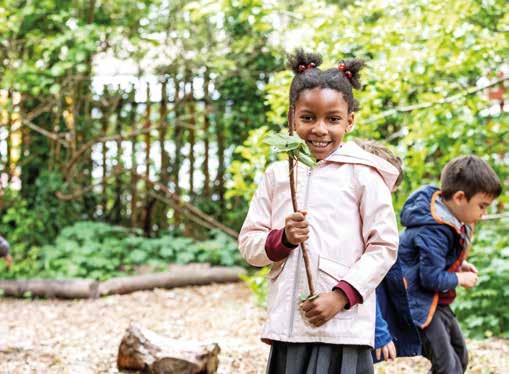



Contents Regulars 21 Michael Rosen 23 Tim Sanders & Warwick Mansell 36 Ask the union 39 International 40 Jon Biddle & reviews 42 Teacher’s pet & letters 47 Photo opportunity & recipe 49 Quick & prize crosswords 50 Final word Features News 6 Enough is enough Sixth form strikes kick off NEU’s Pay Up campaign. 8 Pensions battle Three days of strikes as members fight to stay in TPS. 13 LGBT+ conference Defending our communities in a challenging climate (left). 16 Afro hair discrimination EHRC guidance to avoid unlawful hair policies. 17 Bigger picture Children play their role in our Pay Up campaign. 19 Union people Giving a voice to the otherwise powerless. 37 A class act Reconnecting with the school community after Covid (left). 25 COP27 in Egypt Jenny Cooper reports from a trade union delegation lobbying to keep 1.5oC alive. 26 Coastal poverty The other side of educating in seaside towns (below). 30 Eco schools Let’s Go Zero initiatives to help schools reduce their carbon footprint (above). “Making an impact at ground level.” p30-35 The rest is history 3 February 1988 Nurses in the National Union of Public Employees took part in a national day of industrial action to secure better pay and funding for the NHS. Protesting against a three per cent pay offer, the action was condemned by then Prime Minister Margaret Thatcher but was supported by the public and ultimately led to a 15 per cent centrally funded pay rise. educate Your magazine from the National Education Union (NEU) 5 30 26 13 37
is enough” was the call from picket lines across the colleges
The time is now
action
NEU members in 77 sixth form colleges (SFCs) began their strike action after a formal ballot where 88.5 per cent of voters decided to reject the Government’s pay offer of five per cent and said Yes to strike action. They are calling for a fully funded, above-inflation pay rise.


Teachers working in SFCs have suffered a real-terms pay cut of over 20 per cent since 2010. The five per cent pay rise offered by the Government is not only well below inflation, but is also expected to be taken out of colleges’ already stretched budgets.

Matt Jones, an NEU rep and drama teacher at The Blackpool SFC, was out on the picket line bright and early alongside colleagues. He said: “It’s important for kids in places like Blackpool to have educational opportunities. But we are finding it increasingly difficult to recruit staff. And that means our students suffer. If we don’t pay teachers, we can’t upskill students.”
At BSix SFC in London, while teachers went out on strike, support staff members showed their solidarity by bringing out teas,
educate Your magazine from the National Education Union (NEU) 6
News
“Enough
across the country took their first day of strike
(Above and opposite page) Oldham Sixth Form College in Greater Manchester (Below left and right) Joseph Chamberlain Sixth Form College in Birmingham
country on the 30 November, as NEU members at sixth form over pay.

coffees and biscuits for those on the picket line. “Our support staff were amazing. It was a fantastic atmosphere,” said NEU rep and maths teacher Julie Mukherjee.
Julie explained that going on strike was a last resort, but she felt it was the only way to get the Government to sit up and listen. “At our college we teach some of the most deprived young people in London and they deserve a proper education. If the Government gives us a pay rise that is not fully funded, that will have a detrimental effect on our budget and mean redundancies and cuts. This is why we need the extra funding for education and pay,” she said.
At St Brendan’s SFC in Bristol, NEU rep and biology teacher Bev Forsythe-Cheasley was also out on the picket line. Some students arriving at the college were initially annoyed that their teachers were on strike, “but we talked to them and told them that they should be annoyed. Because maybe then they and their parents will write to their MPs directly. If more students do that, hopefully the Government will take notice,” said Bev.
Following on from the picket lines, NEU members joined sister unions UCU and Unison in rallies and marches in Leeds, London and across the UK. In Leeds, an estimated 800 university workers and supportive students turned out for a rally as part of the UCU’s national strike action for better pay.
And in London, the concourse at King’s Cross station was brought to a standstill. Addressing the crowd alongside UCU’s general secretary Jo Grady and RMT general secretary Mick Lynch – whose members are taking part in rail strikes through December – was NEU joint general secretary Kevin Courtney.
Kevin said: “All of us face a common enemy: a Government that intends to hold down working people’s pay for as long as possible. We’ve won these ballots to strike because ordinary, moderate workers have had enough.
“Right now, thousands of people cannot afford to put the heating on. Can’t afford to eat properly. And that’s a social crisis caused by pay being held down when profits weren’t.
“So now’s the time that ordinary workers in this country are saying there needs to be a rebalancing. Solidarity with everyone who says enough is enough.” neu.org.uk/pay
Photos by Kois Miah, Rehan Jamil, Matt Wilkinson
Last chance to vote Post your ballot today
THE teachers and support staff formal strike ballots over pay are open until 13 January.
In a statement before Christmas, NEU joint general secretaries Kevin Courtney and Mary Bousted said: “A wave of industrial action is gathering pace in workplaces up and down the country.
“Posties, railway workers, teachers and university lecturers, all forced into taking action over pay, compulsory redundancies and unacceptable changes to working conditions. Nurses are being driven to strike because cuts to their pay are fuelling a recruitment and retention crisis that is damaging the NHS.
“Teachers and support staff may have to do the same – to defend the very fabric of education. When we act alongside nurses, the Government will have to listen.
“Please vote Yes to action in our formal postal pay ballot – say enough is enough, that educators, our pupils and the profession really do deserve better. Dig out your ballot paper, vote and post, then tell us you have voted.”
The NEU needs 50 per cent of all members to vote in order to take any action.
educate Your magazine from the National Education Union (NEU) 7
News
Government dumps Schools Bill
IT has been announced that the Government’s damaging Schools Bill, which would have stripped powers from local authorities to control how their schools are run, has been withdrawn.
Kevin Courtney, NEU joint general secretary, said: “This is a relief as the Schools Bill has been widely discredited and focused on the wrong priorities. If we want school improvement or educational quality, the Government must accept that maintained schools are here to stay.
“The NEU successfully disputed the evidence that the Government produced to support its case for forcing every school to join a trust. Our challenge was supported by the Office for Statistics Regulation.
“The Bill did not address the pressing challenges which both maintained schools and academy schools face: recruitment and retention of teachers, school funding, pay and the unequal learning gaps created by Covid.”
Covid: improve ventilation
THE most effective step schools can take to protect against Covid during the winter months – and avoid disruptions to teaching and learning – is to ensure good ventilation in classrooms and other areas.
Please continue using the CO2 monitors that were provided earlier this year. Ventilation is admittedly trickier in winter, particularly at a time when schools are worrying about high energy costs. CO2 monitors can be used to determine if a window or door just needs to be opened a fraction, to avoid wasting heat.
Where ventilation is hard to improve, request a HEPA filter to help clean viruses from the air. Visit cleanaircrew.org/air-cleaners
n Why not become a health and safety rep? Email healthandsafety@ neu.org.uk
Shrewsbury strike over TPS
N EU members at two schools run by the Shrewsbury House School Trust (SHST) took three days of strike action in November and December.

The trust is proposing to withdraw staff at Shrewsbury House School in Surbiton and The Rowans School in Wimbledon, both south London, from the Teachers’ Pension Scheme (TPS).
A consultation began in May 2022, but the trust has failed to take on board any suggestions and decided to move forward with the proposal despite concerns from staff. Repeated requests from members for talks met with silence, and a formal strike ballot in October resulted in a unanimous Yes vote.
London regional officer Paul Coles said: “Members are determined to continue with action until the trust agrees to offer a reasonable alternative to the current proposals. TPS is their contractual right and they are being threatened with fire and rehire if they do not sign to accept the new conditions which remove them from the TPS.
“Staff do not want to strike but feel it is the only way to make the trust take them seriously. The school governors have made no effort to engage with the NEU or teachers to try to avoid this action, despite telling parents they will do everything to prevent the strike.”
Further strike action is due to take place in January.
Research shows positive impact of RSE
THE Sex Education Forum has launched a new publication about relationships and sex education (RSE). It brings together research from publications such as The Lancet and the British Medical Journal, as well as organisations including the universities of Birmingham, Bedfordshire and Chicago, and the Institute of Education.
The charity’s publication is ideal for educators who want to show the positive impact RSE can have on pupils’ health and wellbeing, and on the wider school culture. It also contributes to the NEU’s work to prevent sexism and sexual harassment in schools.
One message from the evidence is that
young people say they want more and better RSE from school and from their families.
Lucy Emmerson, chief executive of the Sex Education Forum, said: “Ministers have failed to provide schools with adequate funding to develop the skills and confidence of teachers and provide high-quality support for pupils. We know many schools are getting RSE right, but this isn’t the picture nationally, with teachers urging ministers to get to grips with this situation.
“We stand with them in demanding action is taken now, with proper and longterm investment in training and resources.” n Download the report at bit.ly/3UqPrFk
educate Your magazine from the National Education Union (NEU) 8
News
NEU members on the picket line at Shrewsbury House School
Last chance to vote in pay ballot by 13 January
Teachers and support staff have their last chance to vote to strike for a fully funded, above-inflation pay rise.
‘A broken system obsessed with outcomes’
YEAR 6 SATs and all other government tests should be replaced by a new system that prioritises children’s learning, the Independent Commission on Assessment in Primary Education (ICAPE) has concluded.
“The system is broken. It is a system obsessed with outcomes, not the learning and development of children,” said Megan Quinn, a teacher and ICAPE commissioner who spoke at the launch of the commission’s report in November.
ICAPE, which included teachers, head teachers and researchers working in the field, has concluded that primary assessment is in urgent need of reform. It makes several recommendations that would overhaul the current system, including phasing out year 6 SATs, and replacing other high-stakes testing with teacher assessment.
The report also outlines the need to create space between assessment of the school and assessment of the child, as well as the need to recognise a broader range of knowledge, skills and understanding, including creativity, for pupils.
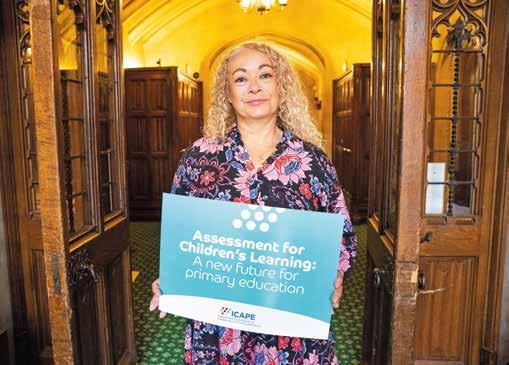
In a recent survey carried out by the commission, the majority of educators (93 per cent) and parents (82 per cent) said they were unsatisfied or very unsatisfied with the system of statutory assessment, while more than three quarters of both teachers and parents agreed
that there should be no government tests in primary schools.
Parents and educators also expressed major concerns over the additional stress statutory tests place on primary children, with nine out of ten saying they increase pupil stress.
Commissioner Dr Kulvarn Atwal, a head teacher of two primary schools, said: “A system that doesn’t focus primarily on
what children need is a system not fit for purpose. But we can’t do this with a quick fix. This has to be a research-informed, considered, five-year plan that engages educators with the process.”
n ICAPE was established to review assessment policies and practices in primary schools in England and is supported by the NEU.
n To read the report in full, visit icape.org.uk
CAN MPs and peers do better than 11-yearolds in English and maths SATs? That was the question being tested at the Big SATs Sit-In at Westminster on 6 December. Under the same exam conditions faced by year 6 pupils, parliamentarians – including education select committee chair Robin Walker MP (pictured left) – tested their knowledge of fronted adverbials and long division. The tests were invigilated by year 6 pupils from Surrey Square Primary School in London, who strictly enforced the rules of no talking, no calculators and no Googling. The event was organised by More Than A Score to highlight the consequences of the high-pressure, high-stakes nature of SATs.
In the “class of Westminster”, only 44 per cent achieved the expected standard in maths and 50 per cent in spelling, punctuation and grammar. PHOTO by morethanascore.org.uk

educate Your magazine from the National Education Union (NEU) 9
Kim Johnson MP at the report launch
PHOTO by Ewan M Riley
Reading Plus is the online reading development programme designed to improve pupils’ fluency, stamina, and comprehension.
Reading Plus pupils achieved on average:
All pupils: 50% increase in their results from the first to the last test.

SIX-MARK increase on their scaled score ending with a pass of 102.
Pupil premium pupils: 96% more progress than control schools across the academic year.
EIGHT-MARK increase on their scaled scores finishing with a pass of 102.
Reading Plus e icacy study in partnership with Derby Research School and Spencer Academy Trust. READ THE FULL STUDY HERE
schools used Reading Plus schools did not use Reading Plus
READINGSOLUTIONSUK.COM FIND OUT MORE
www.readingsolutionsuk.com | 0191 389 6078 | info@readingsolutionsuk.com *In a
Reading Plus study of 470 Y6 pupils over the 2021/22 academic year.
THIS edition of Educate lands on your doormat at the last possible moment for you to vote Yes in your union ballot for an inflation-proofed, fully funded pay rise.
This ballot is special. For the first time ever, the NEU is balloting alongside leadership union the NAHT, as well as the NASUWT. And there is another first for the leadership union ASCL, which is asking its members whether they want to be balloted for strike action.
Why has it got to this situation – with education unions acting together in such an unprecedented way? I think the answer to that fundamental question is two other questions. If not now, when? If not us, who?
Teaching training numbers plummet

The profession is in crisis. The calamitous state of trainee teacher recruitment shows clearly how unattractive teaching has become as a graduate profession. The Government has failed to meet its teacher training targets for most secondary subjects. Let me give some examples: biology missed its recruitment target by 66 per cent, geography by 50 per cent and modern foreign languages by 48 per cent.
I used to lead the English PGCE course at the University of York in the 1990s. The course was always full of wellqualified graduates by the October halfterm. This year, English has missed its target by 39 per cent.
Even primary, which always used to be oversubscribed, missed its target by 11 per cent. This is simply unprecedented.
But the problem does not stop there. It is not just that graduates are choosing other professions which they think will give them better working lives and better pay. The problem is that teachers are leaving the profession they have worked so hard to enter in droves – one in four leave
two years after qualification and 40 per cent within ten years.
Undervalued and underpaid
My book, Support Not Surveillance: How to solve the teacher retention crisis was written in a mood of sustained fury about how badly teachers are treated, how poorly their work is valued and how badly they are financially rewarded.
It lays bare how far England is an outlier in its treatment of the profession and how inept our Government has been with its relentless policy changes that leave teachers exhausted at the end of every single working day.
It details how schools have been starved of funding; how local authorities have been stripped of central government grants to support children and families, leaving schools
as the last public institutions where desperate families and children go for help, because there is no other help available.
It is reliably reported that the biggest issue on the Department for Education risk register is loss of life or limb because of dilapidated school buildings, which have been starved of capital investment to repair faults. School buildings are expected to last for 400 years – apparently without routine and essential repairs and rebuilding.
What must pupils think of their worth as they are condemned to work in these appalling conditions? What does it say to teachers and support staff when they are required to work in buildings which would, in private business, be condemned as unfit for purpose?
27 per cent decline in salary
Teachers have lost 24 per cent of their salary, in real terms, since 2010. Support staff have fared even worse, seeing their salary decline by 27 per cent in the same period.
Things cannot go on like this. We must make a stand. We must show this Government that it cannot continue to treat educators and education with such contempt.
Please, if you have not yet voted – find your ballot paper. Please post your vote. Do it today. Stand up and be counted, for your sake and your pupils’ sake.
NEU joint general secretary Mary Bousted calls on members to stand up and be counted in the pay ballot.
Opinion
not now, when? If not us, who? educate Your magazine from the National Education Union (NEU) 11 HQ 13085 Return Address Civica Election Services PO Box 46556 London N1 0WW CES YOUR NEU BALLOT PAPER ENCLOSED – PLEASE OPEN AND RETURN ASAP NEU2775/0922 In our POSTAL ballot from 31 October to 13 January VOTE NOW To industrial action for a fully funded, above-inflation pay rise. VOTE YES neu.org.uk/support-staff-pay The National Education Union is undertaking a formal strike ballot to demand a fully funded, above-inflation pay rise for support staff. Teacher members and sister teaching unions are conducting one too. Our preliminary electronic ballot confirmed the overwhelming strength of feeling about your inadequate pay offer. And yet the Government still fails to act. NEU2775 P0163 M003 Support staff pay up ballot statutory poster.indd 1 18/10/2022 15:56
If
Agency pay assessor tool
THE NEU is fighting for an above-inflation pay rise for all members, but many supply members don’t even receive their due daily rate. This is because supply teacher pay is dictated by commercial agencies, which are not subject to the school teachers’ pay and conditions document (STPCD) and have kept pay too low for too long.
The NEU agency pay assessor is a new online tool that enables supply members to quickly and easily check if they have a claim for a pay uplift. If they do, the tool will calculate what is owed and provide a model letter to send to the agency.
Road-tested by members, it is the first step in a concerted fightback by the NEU against the domination of profit-making agencies in schools.
n Use the agency pay assessor tool at https://awrpayassessor.neu.org.uk
IN
We met lots of amazing people who were trying their best in terrible circumstances, and we were all astounded by the positive attitude and warmth of everyone we spoke to. We all agreed that it was a life-changing trip, and have returned to our workplaces determined to support Care4Calais and highlight the amazing work it does.
We are really grateful that the NEU afforded us the opportunity to volunteer, and would recommend that others organise delegations.
 By
By
‘Measly’ pay offer results in action at FE college
NEU members at Truro and Penwith College in Cornwall have voted to take six days of strike action during December and January in a dispute over pay.

The offer of a 2.5 per cent pay rise for staff by the employer was described as “measly” by NEU members.
Nationally, teachers in sixth form colleges have suffered a real-terms pay cut of 20 per
cent since 2010. NEU members want a pay offer that reflects the huge increase in the cost of living, and are working alongside UCU members at the college.
NEU rep Robin Dowell said members had been left with no choice but to take strike action: “We are currently in crisis. In Cornwall an astronomical rise in housing costs – both to buy and to rent – has made
housing all but unaffordable. Some staff are reliant on food banks, and in rural communities where the car is a necessity, others are struggling to pay for fuel to come to work.
“This is a national issue. The Government needs to start talking about funding for further education, and colleges need to throw a lifeline to staff who are on the brink.”
educate Your magazine from the National Education Union (NEU) 12 News
NEU members on the picket line on the first of six days of industrial action at Truro and Penwith College
November I travelled to Calais with a delegation of 15 West Midlands members (pictured above) to spend the weekend volunteering with Care4Calais supporting refugees. We took donations from other very generous members to help the charity continue its vital work. Our time was spent packing warm clothes and food packs, and helping with lots of jobs in the warehouse. Then we helped to distribute the parcels to refugees living in makeshift camps in Calais and Dunkirk.
Jodie Mallier-Ridley, Coventry (West Midlands)
‘Connection and support are key’
IN November, more than 300 LGBT+ members gathered in person for the first time since 2019 at the NEU LGBT+ educators’ conference in Bristol.


The conference theme – defending our communities – was chosen by the LGBT+ organising forum to honour our collective histories and reflect the ongoing challenging climate for LGBT+ inclusion in education.
Welcoming delegates to the conference, LGBT+ executive seat holder Kacey de Groot said: “The collective LGBT+ community is very used to having to defend itself. This year has seen a clear escalation in overt and public attacks, both on the LGBT+ community as a whole and on the trans community.”
Kacey went on to discuss anti-LGBT+ media and political attacks, such as the onslaught against Drag Queen Story Hour UK whose founder told conference about becoming the target of unrelenting social media harassment, “just for reading stories to children”.
A keynote panel continued the
discussion on how intersectional feminism is key to challenging anti-LGBT+ rhetoric. Dr Natacha Kennedy, campaigner and academic, highlighted the importance of organising across trade unions to fight “highly transphobic ‘guidance’ for schools”, and queer Muslim activist and speaker Maryam Din spoke about the value of representation and visibility. Delegates also heard from NEU president Louise Atkinson, and Sue Sanders, co-chair of Schools OUT UK and founder of LGBT+ History Month.
Delegates attended workshops on a range of topics including unconscious bias, nonbinary inclusion and Black LGBT+ history.
Dan Lill, chair of the Rail, Maritime and Transport (RMT) union’s LGBT+ advisory committee, shared his experience of trade union solidarity.
Vanessa Nelson led the workshop Setting up shop: a guide to starting and maintaining a pride club in education. “My first experience of LGBT+ conference in 2019 gave me the confidence to come out at work,” she said.

“I’m now actively involved in my district and the LGBT+ organising forum. It’s great to see this conference sparking action in members: some have launched their own pride clubs –connection and support are key.”
Saturday night saw the highly anticipated LGBT+ educators’ awards hosted by Drag Race UK star, activist and former teacher Divina de Campo. Conference celebrated the outstanding lifetime achievement of Michael Dance, who has spent his career campaigning relentlessly for the rights of LGBT+ educators and students.
Most inspiring individual award winner Katie Reynolds acknowledged all efforts to work towards LGBT+ inclusion. “Every poster in a classroom, every badge on a lanyard is instrumental,” they said. “Humans are complex and intersectional, and solidarity is a powerful force: we have more power together than the sum of our power alone.”
By
Vanessa Nelson, member of the LGBT+ organising forum, and Katie Reynolds, member of the disabled LGBT+ network
educate Your magazine from the National Education Union (NEU) 13
Photos by Jess Hurd
Saving with Teachers
helps teachers buy homes
 Teachers Building Society, Allenview House, Hanham Road, Wimborne, Dorset BH21 1AG. Authorised by the Prudential Regulation Authority and regulated by the Financial Conduct Authority and the Prudential Regulation Authority (Reg No. 156580)
Teachers Building Society, Allenview House, Hanham Road, Wimborne, Dorset BH21 1AG. Authorised by the Prudential Regulation Authority and regulated by the Financial Conduct Authority and the Prudential Regulation Authority (Reg No. 156580)
www.teachersbuildingsociety.co.uk
Resources to avoid ‘unlawful’ Afro discrimination
THE Equality and Human Rights Commission (EHRC) has warned schools it is “likely to be unlawful” to have uniform and appearance policies that discriminate against Afro-textured hair.

The EHRC published non-statutory guidance in October to prevent hair discrimination. In it, schools are urged to make exceptions to any policies based on race or religion, to comply with the Equality Act 2010. They are advised not to ban pupils from wearing their hair in any way associated with their race, including natural Afro styles, braids, cornrows, plaits and head coverings, among others.
Catherine Koroma Whitfield, NEU race equality policy officer, said: “On the one hand, those of us who have been campaigning around this issue are relieved. On the other hand, we are perturbed as to why it has taken until 2022 for this form of prejudice to be highlighted as ‘likely’ to be unlawful.
“Many people who have faced the brunt of this discrimination – who were children at the time – have long recognised the absurdity of uniform policies that prevent us from wearing our hair in the way it naturally grows.”
In 2020 the EHRC successfully represented teenager Ruby Williams, who had repeatedly been sent home from school because of her Afro hair.
The new guidance comes in the form of resources designed to assist school leaders in ensuring their policies are lawful and non-discriminatory.
Activists and supporters of race equality initiatives welcomed the EHRC’s findings. World Afro Day (WAD) has campaigned vigorously against hair discrimination and contributed to the guidance.
WAD’s founder and chief executive, Michelle De Leon, said: “Our work supporting families, protecting children and educating school leaders shows that this extra guidance is needed. We hope that these resources will be an effective tool to clarify equality law for teachers and help shift the bias against Afro hair that has become ingrained in some parts of the education system.” n Download the guidance at bit.ly/3txMhEG
Miss, can you twerk? The intersection of racism and sexism
“MISS, can you twerk?” is just one of the questions a Black female teacher was asked by pupils on a daily basis. Other comments included asking to touch her hair, “is that a wig, miss?” and “do you take drugs, miss?”.
At the Black educators’ conference (pictured right) this year, NEU staff launched It’s Not OK, a toolkit for preventing sexism and sexual harassment in schools.
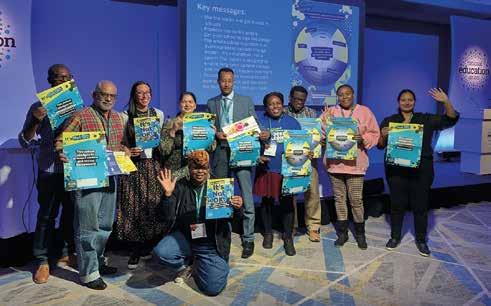
Workshop attendees explored where they have seen sexism in their schools – for example, uniform policies that view girls’ bodies as a problem or a ‘distraction’, poor maternity rights, a lack of menopause policies and the challenge of extremist influencers online who promote misogyny.
But for Black female staff, sexism can at times look very different.
As Satvinder Kaur, workshop cofacilitator, explained: “If Black women want to seek help, or report sexual harassment, they are not starting from the same baseline as other women. They might be worried about facing more racism if they report.”
And quotes from staff in the workshop showed this is the case. One woman explained that when she complained about poor treatment of her maternity rights, as a Black woman, she was portrayed as ‘too aggressive to negotiate with’.
Another teacher said: “The authority of us, as Black female staff, isn’t
respected. We are not taken as seriously by pupils as other teachers.” The NEU will be using this discussion to create new tools for the It’s Not OK toolkit to address the intersection of racism and sexism.
n Visit neu.org.uk/end-sexismsexual-harassment
By Satvinder Kaur and Lucy Russell
educate Your magazine from the National Education Union (NEU) 16
News
Ruby Williams, aged 14 in 2016, the first time she was sent home from school because of her natural hair
Bigger picture
NEU northern region hosted a Strike School during the autumn half-term break, at Beamish Museum in County Durham.
While members planned their Pay Up campaign and prepared for the strike ballot, activities for the children of participants included banner painting and placard making.
Steph, a rep from Gateshead, said: “What a wonderful idea to make the training so family friendly. It was great to attend and bring my son so we could also have a day out.”
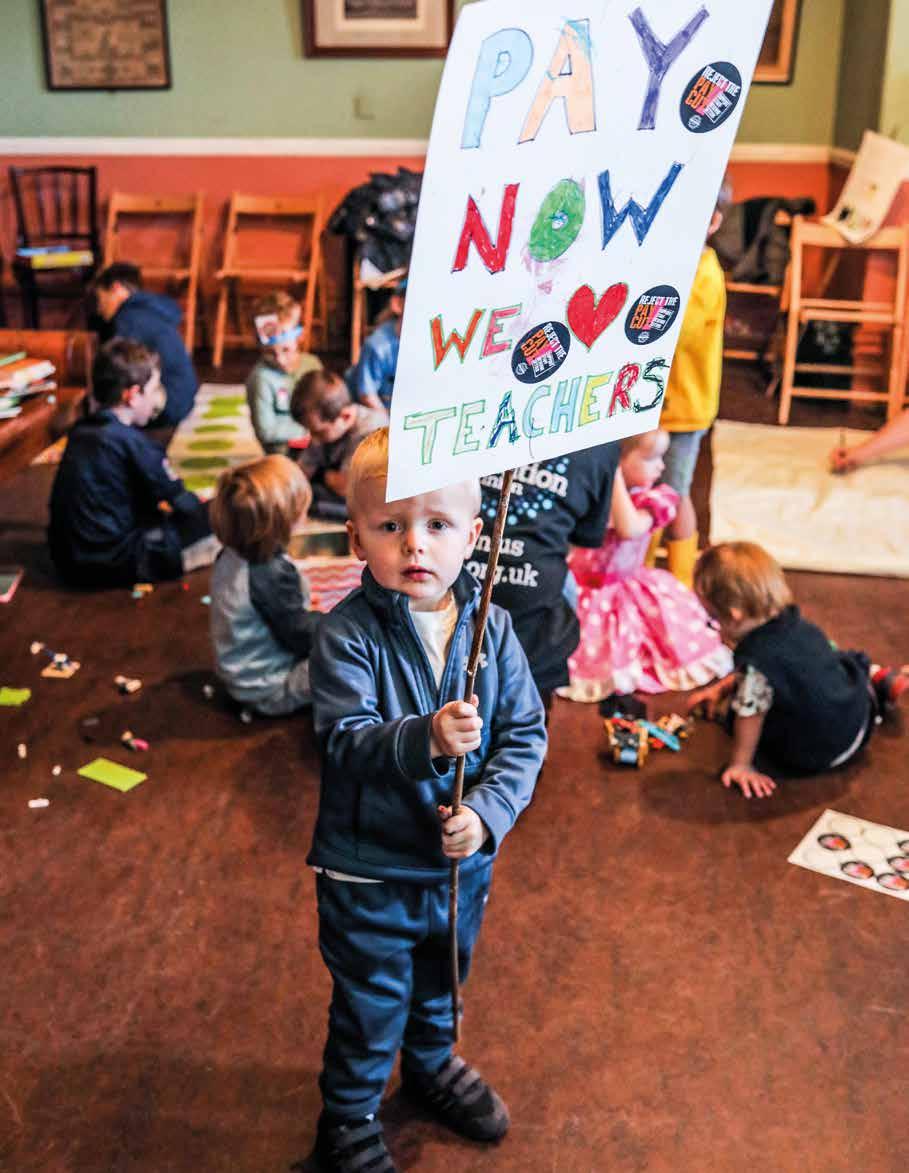 PHOTO by Stuart Boulton stuartboultonphotography.com
PHOTO by Stuart Boulton stuartboultonphotography.com
A dazzling display of talent at MFY Proms
MORE than 3,000 young musicians performed at the Music for Youth Proms at the Royal Albert Hall on 15 and 16 November, which was sponsored by the NEU. The theme of the event was simple – young people make great music and this should be celebrated.

Students travelled from far and wide, none more so than musicians from Ukraine who are safely continuing their studies at the London Performing Academy of Music, showing an incredible level of bravery and commitment to music.
Rubik’s Cube, a special needs choir, was introduced by a student and the use of Makaton, based on sign language, alongside singing reminded us that music truly is a universal language.
Adey Grummet and Michael Henry led a collaborative creative project drawing inspiration from the excitement of coming back together for in-person rehearsals.
The Lincolnshire Massed Ensemble featured almost 500 participants, aged between eight and 21. The hall was filled with energy, and the soloists provided the audience with first-rate entertainment. The bravery of the younger performers was a
reminder that music can help young people to become more confident.
Fifty NEU members each won two tickets to attend the performances.
Michelle, an NEU member from Yorkshire and Humber, said: “I was absolutely thrilled to win tickets. It was an incredible experience to watch such talented young musicians at this iconic venue. It was certainly an evening I will never forget.”
With a combination of arrangements and original compositions throughout the evenings, the talented musicians were a fabulous example of why every young person deserves a chance on this stage.
Debate, networking and CPD at support staff conference
THE delayed 2022 annual support staff conference will now be held on Saturday 14 January at the NEU’s head office in Hamilton House, London.
It will be the first conference to be held in person since the pandemic. The day’s agenda will include the usual mix of debate, networking and continual professional development (CPD). NEU joint general secretary Mary Bousted will address
conference and then hold a Q&A session. A range of CPD workshops are available, in: n Pregnancy and maternity rights – results from the NEU maternity survey n Working with English as an additional language (EAL) and refugee children n It’s YOUR union: how to make sure your voice is heard n The curious case of ADHD – demystifying ADHD and common overlapping conditions
n Assertiveness and positive behaviour management.
The conference will also choose a motion to be debated at the union’s annual conference in April.
It is free for NEU members and includes lunch and refreshments. The deadline for conference registration is 7 January. n Visit neu.org.uk/event/supportstaff-conference
educate Your magazine from the National Education Union (NEU) 18
Thousands of talented young musicians performed at the Music for Youth Proms at the Royal Albert Hall in London
News
‘The classroom is once again a special place’
What do you love about your job?
Working with primary children should mean working with the most creative people on the planet. Sadly, for many years Future Academies’ primary curriculum excluded creativity, while joy and awe were deemed superfluous. The cost to children’s development was huge, and so was the damage to the mental health of everyone in our school community.
However, after a hard-fought NEU campaign alongside a truly inspirational group of educators at Churchill Gardens Primary Academy, in Pimlico, London, the trust has restored creativity to the curriculum. The classroom is once again a special place to be.
What do you love about being in the union?
Unions are such an essential part of democracy: giving a voice and power to people who might otherwise be powerless.
At our school, we know how important the NEU is. In just one year, union members successfully campaigned for a radically new approach to mental health within the trust. This would have been impossible without collective action, and ultimately the prospect of industrial action. We are now more united than ever, and excited about what we can achieve.
What’s important to you right now?
Continuing to campaign for mental health to be taken seriously in our schools, both for staff and children.
Many schools try to take mental health seriously but we need the support of the Government. We are overworked
and underfunded, and are asked to be child psychologists to cover for the abject neglect of mental health services under successive Conservative governments.
It is shameful that, despite the obvious impact of education on minds in their most formative years, the mental health of teachers and children remains an afterthought.
What do you do on your day off?
Like every educator, I have given so much time and energy to teaching during the week that it is hard to give my son the time he needs. However, on a day off I can give him my proper attention.
Now that he is two, we can chat and I can find out who he is. If I’m not doing that, I might be watching Arsenal or going for a long walk in the countryside.
Tell us something we don’t know. I am a huge fan of baseball, especially the New York Mets. Between April and October I watch the previous night’s game over breakfast.
Major League baseball teams play almost every day, which creates a perpetual cycle of hope. If Arsenal lose, I often have a whole week to wait before a chance of redemption, but in baseball there is always tomorrow.
Update your details and join us at disabled educators’ conference
THE NEU’s disabled educators’ conference will take place in Manchester from 19-21 May.

There will be a series of workshops, panels and sessions which focus on topics pertaining to disabled activism and self-organisation. It provides an exciting opportunity to strengthen regional networks and continue to build a powerful movement of disabled educators. This conference is integral to the democracy of the NEU, with members able to vote on a motion that will then be sent to
NEU annual conference. Delegates will receive accommodation, breakfast, dinner on Saturday night, lunch and refreshments. All you need to do is complete the application form and it will be sent automatically to your district secretary for consideration. If your district nominates you, it will pay the conference fee.
Applications open in January and details will be sent to all members who have informed the union that they identify as disabled.
n If you have a physical or mental impairment, long-term condition or neurodiversity, update your membership at my.neu.org.uk/login
March at bit.ly/3GUisq1

Union people
Andrew Somerset is the NEU rep at Churchill Gardens Academy where staff have secured significant changes on mental health, workload and observations after a long-running dispute.
educate
(NEU) 19
NEU rep Andrew Somerset on a march in London
Your magazine from the National Education Union
n Register for the disabled educators’ conference by 17
Conference 2022 PHOTO by Rehan Jamil
‘Well-nourished children learn better’
“I WAS a free school meals (FSM) kid all the way through school. As a teacher, I know if we were providing all children with a healthy meal, it would help them in the classroom,” said NEU president Louise Atkinson, speaking at an event in Westminster calling on the Government to provide FSM for all pupils on universal credit (UC).
There are currently 800,000 children in England living in poverty who are not eligible for FSM. That’s the message from The Food Foundation, which has launched a campaign, supported by the NEU, to extend FSM to all children in households on UC.
At the event in November, politicians and campaigners were faced with the reality of life in the school canteen for many children living in poverty, as some were served a hot meal by celebrity chef Tom Kerridge, and others were given a cold packed lunch.
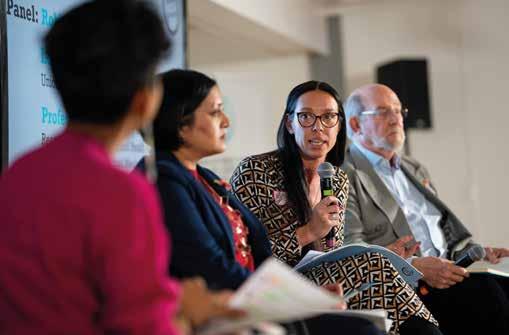
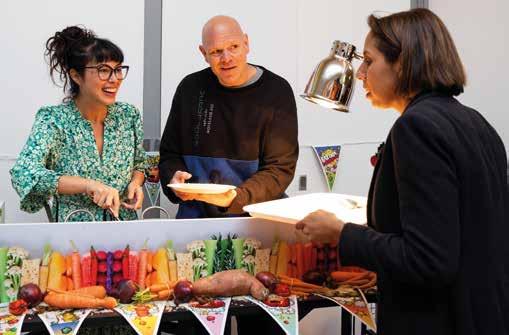
‘We want to ensure no child is left behind’ Louise discussed the “superpowers” of free school meals. She highlighted the NEU’s campaign Free School Meals for All, which calls for the extension of FSM to all primary pupils, not just to children in families on UC.
Louise said: “The NEU is calling for universal FSM in primary school because, as educators, we know that children who are wellfed and nourished learn better. We want to
ensure that no child is left behind and that all children can eat, share and learn together.
“The system we have at the moment, of restrictive eligibility, complicated registration and the stigma attached, leaves children going hungry.”
Food insecurity affects 2.6m children
Last year, 2.6 million children experienced food insecurity – not having access to nutritious and balanced meals, or even
having to skip meals entirely. The cost-ofliving crisis is set to send many more below the poverty line.
In 2020 Scotland pledged to extend FSM for every child in primary education and Wales made a similar promise in 2021. It’s time for England to catch up.
Cost-of-living crisis hits hardest
In an open letter to the Prime Minister signed by celebrities, campaigners and educators, the Free School Meals for All campaign said: “We are living through the greatest cost-of-living crisis in a generation, and too many families with young children are being pulled into poverty.
“Free school meals for every child will put money back in parents’ pockets. That’s money they can use to pay for other essentials for their children, from heating and food at home, to hobbies and after-school clubs.”
Sign our letter to the PM
n Add your name to our open letter telling the Government to extend FSM to every child in primary school at freeschoolmealsforall.org.uk
n Find out more about the Food Foundation’s campaign at endchildfoodpoverty.org/ feedthefuture
educate Your magazine from the National Education Union (NEU) 20
Celebrity chef Tom Kerridge serving meals PHOTOS by Will Hearle, courtesy of The Food Foundation
News
NEU president Louise Atkinson speaking at the Westminister event
The Black Hole Mystery
 Words by Michael Rosen Illustration by Dan Berry
Words by Michael Rosen Illustration by Dan Berry

You can always tell, when things are getting serious, politicians make the economy seem strangely mysterious. They start to talk of factors beyond their control; and they invent metaphors, like a ‘fiscal black hole’.
They pretend they juggle figures, with great precision and that everything they do is a ‘difficult decision’. But whatever they do, with this circumlocution they return again and again, to the same solution:
A chancellor appears before us, preens and struts then announces yet another set of public sector cuts. We know what this means, even if they don’t say –fewer staff, worse conditions, and of course low pay.
It’s not really a mystery, because it’s always the same: they wreck the economy and we get the blame.
educate Your magazine from the National Education Union (NEU) 21
Michael Rosen
A wealth of experience and optimism
THE cost-of-living crisis and pay were two of the issues discussed at this year’s independent sector conference, held on Saturday 19 November.

Independent schools are very different beasts to state schools. They’re businesses run by people who are not businesspeople, but as Barry Gardiner MP said: “If the only way for you to run your business is to grind down the wages of your workforce, then you are running your business poorly.”
With this in mind, the independent sector conference could not have been more timely. The issues around the Teacher’s Pension Scheme were passionately discussed and we were encouraged to continue to fight for our deferred wages. I always enjoy the democratic processes of the union and was pleased to witness the voting of six fabulous members to attend annual conference this spring.
I had approached this weekend’s independent school conference with a little more than the usual trepidation that a northerner feels when forced to go to
London. This would be my first as a member of the independent members’ national council, and my first in-person national conference since before the pandemic. As a young(ish) woman, these environments can also be intimidating.
I am pleased to report that my concerns were unfounded. What I encountered was a wealth of knowledge, experience and optimism from an entertaining and rousing panel of speakers who kicked off the day. The independent sector has had a very busy year. The Girls’ Day School Trust strikes have accounted for one of the NEU’s great successes of recent years, and I was encouraged to hear from three of the organisers about their experiences of strike action and organising ahead of things yet to come for many of us, including our friends in the state sector.
I leave you with the message I feel that this conference has brought us: read your contracts, know your rights, stand up for them. By Beth Collins, independent members’ national council
Working together in schools to tackle sexism and harassment
AS part of International Day for the Elimination of Violence Against Women, the NEU formally launched It’s Not OK, a new toolkit to tackle sexism and sexual harassment in schools and colleges.
The toolkit is a response to research and concerns from members that sexism and sexual harassment are far too prevalent in schools.
Helen Clark, a lecturer at Sheffield Hallam University within its education, psychology and counselling department and a member of the NEU, attended the launch. She said: “I feel very privileged to have met and networked with teachers and union members who are also passionate about this issue.
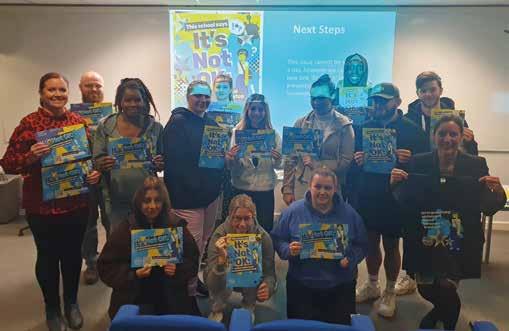
“I was more than impressed with the organisation of the conference and the content of the talks. The speakers, the agenda, the workshops and the resources provided were extremely informative and inspirational. It reinforced that we all need to work together and take an active part in raising awareness and put an end to sexism and sexual harassment.
“This needs to start from an early age. Schools can play a significant role in the prevention of sexist cultures, and can influence society to become equal, compassionate and
a place where there is mutual respect. We also need to work together to reduce crimes happening later in life, such as domestic violence, coercive control and rape.”
educate Your magazine from the National Education Union (NEU) 22 News
Sheffield Hallam University students with the NEU’s It’s Not OK toolkit
Guest speaker BBC journalist Samira Ahmed was a pupil at Wimbledon High School, part of the Girls’ Day School Trust, and supported its strike
Shaky foundations of Ofsted’s house of cards

accused of cherry-picking studies that supported what seemed to be a pre-standing ideology at today’s inspectorate, in favour of traditionalist approaches to teaching as advocated by this Government.
statement: “When pupils obtain levels of proficiency, they look forward to and enjoy tests.”
WHAT happens when an inspection agency completely loses the trust of those it is meant to be inspecting? I have been wondering about this, after contemplating a slow-building scandal involving the agency which as a country we are encouraged to trust to tell the truth about the state of our schools.
Yes, Ofsted has been under the microscope again, and the details of its activities in one recent aspect of its work have been especially concerning.
Last year, the inspectorate started publishing “research reviews” in national curriculum subjects. These looked at existing research evidence, before, as Ofsted puts it, setting out studies that had “informed our thinking on subject quality”.
As these reports emerged, though, a problem soon became clear. Ofsted was

What has become more shocking, though, has been the extent to which evidence in studies referenced by Ofsted appears to have been misrepresented, or even, it would seem in some cases, invented.
A researcher at Sheffield Hallam University told Schools Week that he had been “astonished” to find his research cited in Ofsted’s maths review, in support of a statement about how homework motivated children, when he had not investigated the issue.
I then tracked down complaints from three seemingly eminent research teams, based in the US and the Netherlands, who had told Ofsted that their findings had been misused in the maths review. Another high-profile academic told me that what seemed a central idea put forward by Ofsted in its maths document, which had as its only reference a paper he co-authored, amounted to a “complete fabrication”.
Ofsted also cited a study involving five pupils as its only reference behind the sweeping
Overall, the Association of Mathematics Education Teachers found that, for 86 of the 307 references in this document, Ofsted’s statement did not match what the referenced research had said.
Turning to Ofsted’s English review, the prominent grammar expert, Professor Debra Myhill, complained it was “hard to see” how Ofsted’s statement, which had referenced an editorial of hers, “bears any resemblance” to it. And another research team, writing on English Literature, set out how Ofsted had misquoted them.
The Language Learning Journal published an entire issue on controversy around Ofsted’s document for modern languages. Early educators are also criticising its equivalent in their field. The NEU organised an all-day conference on the reviews, at which I spoke.
It is hard to overstate how damaging this has been to Ofsted’s reputation, among those who have viewed these complaints up close. For, if an inspection agency cannot tell the truth, what is it doing presiding over our education system?
educate Your magazine from the National Education Union (NEU) 23
Warwick Mansell is a freelance education journalist and founder/writer of educationuncovered. co.uk
Opinion
Cartoon by Tim Sanders








educate Your magazine from the National Education Union (NEU) 24 Put creativity at the heart of your curriculum with Artsmark Ensure every young person can be creative and access a diverse and inclusive high-quality cultural education. Artsmark Award's flexible framework supports you to embed arts, culture and creativity across your whole setting. Scan me to find out more. @ArtsmarkAward /Artsmark1
Callum
/ LIPA Primary and High
Photo
@
McMorran Canteencreate
School
Despair and determination
Brent
district joint secretary Jenny Cooper reports from the UN’s climate change conference, COP27, in Egypt.
I WAS privileged to represent the NEU (including our fantastic climate change network) and the TUC as part of the international trade union delegation at COP27 in November.
Hosting such an event in the Egyptian desert meant a huge carbon footprint and much greenwashing – I spotted someone watering the grass under a board that said: Save the Planet. Also, holding COP in a country with an appalling record on human rights means risking being complicit with that regime –hundreds of activists are detained without fair trial in Egyptian jails – and security was tight.
The International Trade Union Congress (ITUC) delegation was there primarily to push the Just Transition agenda (pictured right), which has labour rights and human rights as its core. As a delegation, we were also lobbying to keep 1. 5°C alive, in common with other civil society groups. (The goal of COP26 was to limit global warming to well below 2°C, preferably to 1.5°C, compared to pre-industrial levels.)
Why 1.5°C? Because of all the stories we heard from those directly impacted even by our current 1.1°C: the low-lying, disappearing Pacific islands, Pakistan, Bangladesh, Somalia and many indigenous peoples’ lands. The current rise in emissions since COP26 in Glasgow will take us to 2.7°C if not halted. We heard from Sifiso Ndlovu from a teaching union in Zimbabwe, where 20 schools were swept away this year alone in cyclones which continue to increase in number and severity.
A just transition for education
Quality climate education continues to be discussed at COP thanks to youth activists – who governments like to exploit for photo opportunities (known as youthwashing). While supporting this education, as a trade unionist I tried to push the agenda that there is so much more at stake around the need for resilience to the effects of climate change. This includes the sustainability of the education system, retrofitting of buildings, the health and
safety and protection of workers, all through a just transition. And, of course, proper funding of public services, which needs a higher profile within the context of climate change.

UK Government negotiators were not keen to be lobbied at COP, but were very enthusiastic to present themselves as green leaders in meetings.
Oil spills and deforestation
Young people from indigenous cultures who had experienced BP oil spills, sea level rise and forest exploitation were utterly despondent yet refuse to be defeated. “We are now fighting with our lives to protect the small amount of forest that is left,” one said.
It is this fierce determination from those most affected, who did the least to cause climate change, that gave me hope. The march


and rally (pictured above) for human rights on my penultimate day was massive, loud and angry. People power won and I believe this contributed to the ‘loss and damage agreements’ at the eleventh hour – which included funding for vulnerable countries hit hardest by climate disasters.
And I will never forget the sight of the sister of the jailed Egyptian-British blogger, Alaa Abd El-Fattah, whose hunger strike hit global news, standing dignified while a spokesperson read her speech dedicated to her brother. A family who continue to speak out against all odds – an example to us all.
n Visit cop27.eg
n Find NEU resources at neu.org.uk/ sustainability-and-environmental-education and neu.org.uk/climate-change
n See pages 30-35
educate Your magazine from the National Education Union (NEU) 25
News
feature
(Above) Human rights rally (Below) ITUC pledge; young indigenous people speak of their experiences
Sally Gillen explores the often overlooked poverty suffered by coastal areas and the impact on their schools.
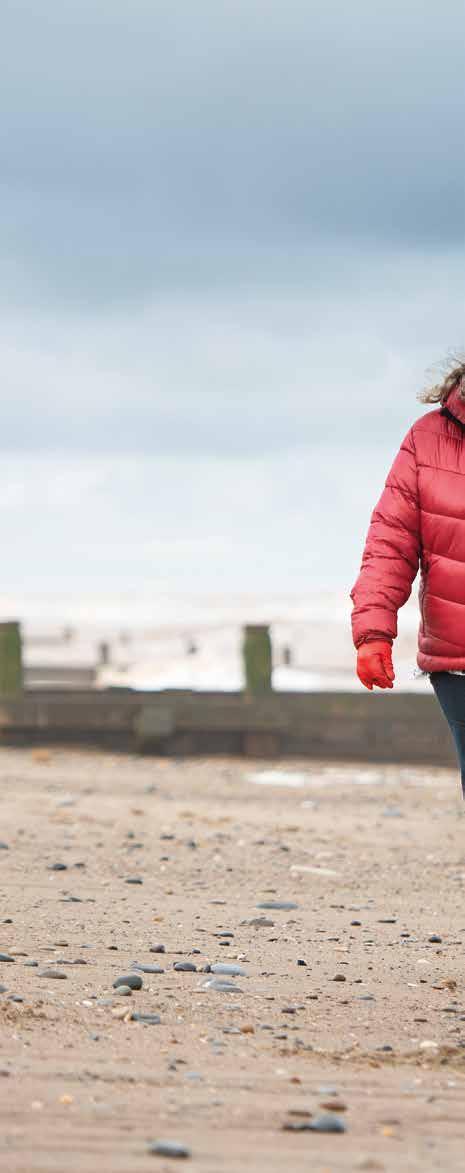
WHEN Eugene Doherty was 11, his Dad made him a porter-style buggy. On Saturday mornings, Eugene would wheel it down to the bus station in Morecambe, where he would meet holidaymakers off the bus and offer to carry their luggage to the hotel. It was a good way to earn some pocket money.
Two years ago – and 50 years later – Eugene found himself back in his home town, once again making deliveries. Only this time he was dropping off food parcels to the hotels, now converted into flats, as a volunteer for the local food bank.
This reflection on the Lancashire resort’s changing fortunes, which mirrors that of many others around the country, was shared by Eugene at this year’s NEU annual conference during a debate about the challenges experienced by schools and educators in coastal areas.
“I taught in London for around 20 years, in some of the poorest areas, including Tower Hamlets and Hackney, but I know that the idea that all the poor areas are in inner cities is not true,” he tells Educate.
Many overlooked factors influence educational attainment Eugene returned to Lancashire after taking early retirement and worked for a time as a supply teacher at schools across the county. “A school in Blackpool on the south shore was the most challenging I’ve ever worked in,” he says.
Interestingly, however, the unique difficulties faced by schools on the coast do not get the attention they deserve. Instead, they are likely to be named and shamed for the achievements of their pupils. In 2019, for example, the Department for Education (DfE) released a report apparently showing pupils in coastal towns achieved three grades lower in their GCSEs.
The complex context in which these schools exist is not taken into account. Poor transport links, lack of investment and development, low-wage jobs, seasonal work, high levels of unemployment and geographical isolation all contribute to the high levels of poverty in many of these towns.
Busting the myth of
educate Your magazine from the National Education Union (NEU) 26 Interview
Feature
Idyllic seaside life far from reality for many children
In Blackpool, arguably England’s most famous seaside resort, teachers such as Christine Butterworth work with children who are among the poorest in the country. DfE data for 2020/21 showed 73 per cent of children were eligible for free school meals (FSM).
At Christine’s school, around 40 per cent of children have FSM and Pupil Premium funding (at her previous school – also in Blackpool – it was 57 per cent) and all children are given breakfast and a carton of milk.
She feels there are many positives to working and living in Blackpool and is proud to be a teacher in the town. But it has its problems. Poverty is growing, she says. Many families do not own a car or catch buses, choosing to walk everywhere, meaning there are more and more children who do not travel beyond their local community.
Idyllic notions of children growing up by the seaside, spending hours playing on the beach and breathing in clean air, are some distance from the reality for the poorest children. Many rarely go to the beach.
“Blackpool can become quite insular and there are some families who have never moved away. This has a knock-on effect because it means the children do not get to experience what the north west and beyond can offer,” she says.
On school trips she hears children marvel at what are ordinary things, but which they have never seen before. One child excitedly named a brown cow “a new animal” because they had only seen ones that were black and white.
“A lot of the children go on a tram for the first time, feel the sand between their toes, or get overexcited about getting on a coach and going on the motorway,” she says. “These are things we take for granted but a lot of our seaside children haven’t experienced activities on their own doorstep, let alone further afield.”
Blackpool is a town that attracts those looking for seasonal work and low-cost housing. That creates challenges for teachers, explains Christine, because families are continually moving in and out.
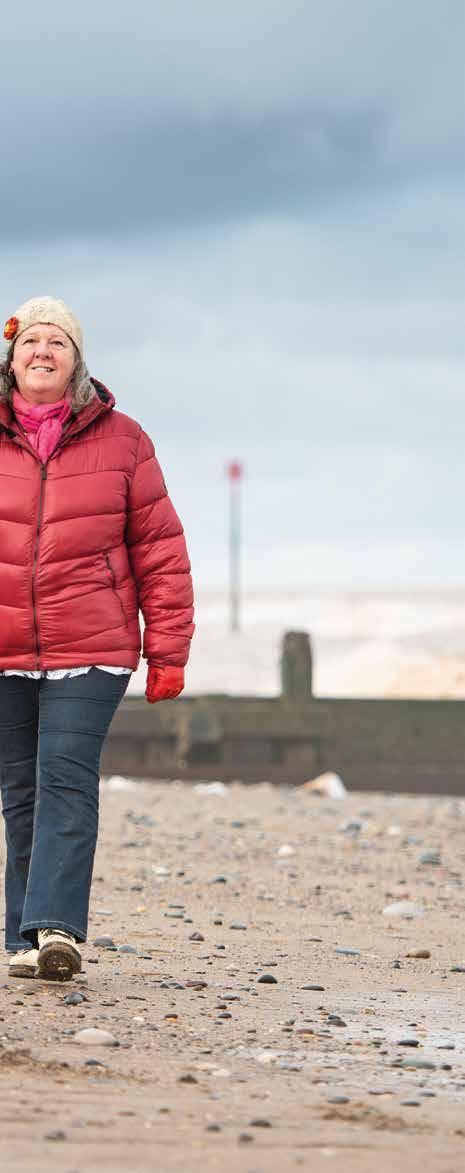
“It becomes a transient area. In the classroom this means more children joining your class, setting up friendship groups, assigning a buddy, moving the seating around, and finding out where they are in terms of learning and understanding.” continued on page 29
the seaside idyll
Words by Sally Gillen Portrait by Matt Wilkinson
educate Your magazine from the National Education Union (NEU) 27
Feature
“Kids are cold. Kids are hungry. Kids are angry.”
Lynne Naylor (left), Holderness














educate Your magazine from the National Education Union (NEU) 28
THE STORIES
NEED TO BE
TELL
THAT
HEARD
Oxford Cambridge and RSA Physical Education, Sociology, Psychology, Geography, and Business Studies
Book your school visit to Imperial War Museums now iwm.org.uk/learning
continued from page 27
Blackpool needs investment and areas must be regenerated. “It needs to be attractive to families and businesses, not just the weekend lodgers,” she says.

Low wages and seasonal employment
Lynne Naylor, a support worker at a school in a rundown seaside resort on the Holderness coast in Yorkshire, also witnesses the poverty created by low wages and seasonal employment. All of which has been made so much worse by the cost-of-living crisis.
“Kids are cold. Kids are hungry. Kids are angry,” she says.
Holidaymakers and day trippers once arrived by coach and train, many of them from nearby Hull. Not anymore. “When you don’t have the people, you don’t have the development; when you don’t have the development, you don’t have the people,” explains Lynne. “I love living here but all of that is part of the challenge for our kids.”
Many rarely leave the town, which has a population of around 6,000, not even for the day. The train station closed in 1964. Buses are prohibitively expensive at £14 for an adult return and £9 for a child to Hull, the nearest city, an hour and a half away.
“It is so difficult to get anywhere,” says Lynne. “I’ve lived in the Scottish Highlands but when I arrived here, I felt like I had stepped back three or four decades.
“A lot of our children and young people who are from lower socio-economic backgrounds have their heads turned at 14 working in the bars or chippies for the summer. At that age, they think they are earning good money, so they think, ‘I’m
not going to bother that much with school because I can do this job.’
“Ten years on, they are still doing that job and find they are living a life earning rubbish money. It becomes a vicious cycle.”
She believes the Government’s academisation agenda, with its focus on academia and obsession with looking at the many sub-levels of improvement from SATs to GCSEs, has drastically reduced the opportunities for young people in towns such as hers.
“The Government has done nowhere near enough to tackle the issues facing schools in coastal areas,” she argues. “Vocational education is a huge thing in coastal and rural towns and not having it adds to the poverty. My school doesn’t even have a sixth form anymore and this further lowers our young people’s aspirations. If you have to travel an
hour and a half on the bus to go to sixth form, well, you just won’t go.
“And if young people aren’t interested in higher academic study, they don’t come to school because they can’t engage with the curriculum. A lot of them vote with their feet and don’t bother much with years 10 and 11, because they know there’s nothing for them at years 12 and 13. They accept they will go into seasonal work, do all right through the summer, try and muddle through the winter, and that’s them living their life in this town, doing it their way, because it’s all they can do.”
Pockets of deprivation
In Portsmouth, primary teacher Helen Reeder also reflects on the social isolation experienced by many of her pupils, who live in flats on a very deprived council estate surrounding the school and rarely leave.

“We find that many of our children just don’t have experiences. In terms of learning, that impacts things like creative writing. One of the things we do at the school is have a list of ten things that children must experience before they leave, which include things like going to the theatre, going to the beach, going on a residential. For those families who can’t afford it, we use Pupil Premium funding.”
She adds: “I don’t think poverty in coastal towns is recognised. There’s this idea that it must be lovely to live by the seaside, but there are these pockets of children who are very deprived.
“We are close to the Hampshire border, and talking to colleagues there, children go off here, there and everywhere, but with our children you can’t even assume that they have been to the beach three miles away.”
educate Your magazine from the National Education Union (NEU) 29
“Seasonal work means it becomes a transient area. Families move in and out. This creates challenges for teachers.”
Feature
Christine Butterworth (left), Blackpool
“Many of our children just don’t have experiences. You can’t even assume they’ve been to the beach three miles away.”
Helen Reeder (right), Portsmouth
Ask the union
Parent friends on social media
I’M friends with the parent of a child I teach and we recently connected on social media. I’ve been told this is unprofessional by management, but the school does not have a social media policy. Surely I’m entitled to a private life?
Of course you are entitled to a private life, but it is important, for your own protection, to be aware of professional and social boundaries.
It is not advisable to accept or invite Friend requests from pupils, their parents or ex-pupils under the age of 18. Even if the friendship developed out of school, caution still needs to be exercised.
Rather than criticising you, your school should instead work constructively with staff and union reps to develop a social media policy that everyone understands and supports. n Visit neu.org.uk/advice/social-media-andonline-safety

’Not needed’ now pregnant
I AM a support staff worker on a fixed-term contract. The school led me to believe I’d be kept on next year, but I recently found out that I am pregnant and now am being told I’m not needed anymore. I’m really upset as I love the school and was hoping to stay there. I’m also worried about my lack of income.
If you notified the school of your pregnancy and its change of position regarding you being kept on next year followed on from that communication, you may be a victim of pregnancy discrimination under the Equality Act 2010. The ending of your fixed-term contract might be an automatically unfair dismissal, particularly if there is an ongoing
need for the role to continue beyond the end of your fixed-term contract.
Speak to your workplace rep or contact the NEU AdviceLine. Be aware that time limits in discrimination cases are very short: only three months less one day from the date of the act complained of.
Fixed-term contract
I WAS offered a fixed-term contract for what appears to be a permanent vacancy –a colleague left their position and I applied for the job. It feels like the school is ‘testing the waters’ with me. Is there anything I can do?
Unless there is a legitimate reason for a post to be offered as a fixed-term contract – for example, sickness or maternity cover, or timelimited funding – your employer shouldn’t
be offering a contract for an ongoing post on a fixed-term basis. Query this with human resources and ask whether it is a mistake.
If you have been employed by your current employer for longer than two years before taking the new role, you have the right not to be unfairly dismissed regardless of whether the fixed-term contract has an end date. So there is little point in appointing you via a fixed-term contract as they would not be able to lawfully end your employment when the contract expires without risking an unfair dismissal claim.
If this remains unresolved following your contact with HR, speak to your NEU rep or call the AdviceLine if you do not have a rep. n Call the NEU AdviceLine on 0345 811 8111
Please email your questions to educate@neu.org.uk
Free CPD webinars for all NEU members
NEU members have exclusive access to our continuing professional development (CPD) webinars. Here are some of the courses coming up.
Primary: support for children with speech and language challenges
Tools and approaches for primary educators and support staff to help children’s speech and language development, including how to plan for pupils needing a more targeted approach, and how to involve and support parents. 24 January from 3.45-5pm
Early heads/deputies coaching development programme
A five-month online development programme for aspiring deputies and heads in the early stages of their career. One-to-one coaching and group sessions build confidence and purpose while exploring psychological changes that accompany the move into leadership. 1 February-8 June
Supply members – Educare bundle
The NEU has partnered with Educare to offer a range of accredited, online courses
for NEU supply members. Topics include safeguarding, student mental health and wellbeing, first aid essentials, and tackling bullying. Each course can be completed when convenient to you. Available until 31 March
n Webinars are recorded and made available for seven days afterwards for those who have registered, to view at a convenient time.
n To book or for more information, email cpd@neu.org.uk or visit neu.org.uk/national-cpd
36 educate Your magazine from the National Education Union (NEU)
IMAGE by 13_Phunkod
A class act
So good to be back at heart of the community
Monty Parrot (pictured) is a year 5 teacher and NEU rep at The Oaks Primary School in Crawley and is passionate about the opportunities that opening up schools to the wider community can offer. Sarah Thompson finds out what makes him a class act.

THERE was a genuine buzz and excitement throughout the school when The Oaks Primary School held its first annual harvest meal for two years back in October, says Monty.
Members of the local community, including staff and residents from a care home, the head of the church, MP Henry Smith, and a representative from a local homeless shelter were all invited to enjoy a meal planned, prepared and cooked by 60 year 5 pupils.
It’s an event that aims to strengthen the school’s relationship with the local community,
something which Monty says had been “really lost from our schools during Covid”.
The children were involved at every stage, from deciding the menu – they settled on a main course of pumpkin soup, followed by apple crumble – to decorating the dining hall, laying the tables and serving guests. “Giving the children genuine ownership of the meal inspired passion and curiosity among them,” says Monty. “It started a whole conversation about food, and it was wonderful seeing their excitement. Food is something everyone has an opinion on, so it made everyone feel like what they were saying was valid and valued.
“We decided we would make something that wouldn’t be too challenging, so that all the children could participate,” he says, adding that they were keen to make use of seasonal produce and chose apple crumble – “by far the most popular dessert in our year group”.
An event like this can really empower children, says Monty, as it demonstrates that they have the skills and ability to make a difference to people. “If they get to be part of a project where they can see almost instantly that what they’re doing can have a positive benefit to the community then they can see the benefit of school and education.”
It was also an opportunity for the school to strengthen its relationship with parents.
“We found that by creating communitybased events, such as the harvest celebration, parents have wanted to become more involved in the school and feel like they are a more integral part of their own children’s education,” Monty says.
Social and emotional skills
Community events like the harvest meal play a key role in children’s personal, social and emotional development too.
“Primary school is such a formative time, where you’re not just teaching a subject, you’re creating a whole child,” he says. “You’re helping mould personalities, helping them with emotional struggles and perseverance, and trying to help them to go on to learn different subjects. Our job as educators is to develop skills which will help them later in life.”
The school also organised a food collection point and a representative from the local homeless shelter led an assembly discussing homelessness and poverty. It really sparked children’s interest and raised their awareness of the challenges faced by many people within the community.
“We had loads of children asking what they could do to help and why something like homelessness is still an issue. It really highlighted the fact that there are many people less fortunate than us, and many that we might not even know about.”
The harvest meal is just one event in a packed calendar of events – such as visiting a local care home to read to the residents – as the school strives to reconnect with the community and give children learning experiences that extend beyond the classroom.
“Schools are places with immense power and by rebuilding community links we have the opportunity to share knowledge, ideas and stories with everyone around us. What could possibly be better than a world in which communities feel more connected and education is more highly valued?”
educate Your magazine from the National Education Union (NEU) 37
Do you know a class act? Email educate@neu.org.uk
Starting


a new addition to your family is exciting but it can also
of work and
you
protection of your union. If you have a question about your maternity or parental rights or pay, contact your local rep, the
or take a look at our comprehensive guide to maternity rights at neu.org.uk/maternity Please note: subscription holidays for maternity, parental and adoption leave can only be processed in the current subscription year
September
August 2023). We are unable to backdate requests for previous subscription years. To find out more visit neu.org.uk/neu-membership-rates Did you know that members on maternity leave, shared parental leave, or adoption leave do not have to pay membership fees? NEU1958/0822
a family? Welcoming
be a time
financial worries so it’s more important than ever that
have the
NEU AdviceLine
(1
2022-31
Children pay a terrible toll in Palestine
West Bank, where sport and cultural centres provide vital lifelines for local children.
My visit to a school in Ramallah the following day was tearful, with 50 kids to a classroom and a shortage of teachers.
THE motivation behind my trip to Palestine was educational. I decided to witness the occupation for myself after reading about American peace activist Rachel Corrie, who was killed in Gaza in 2003 by a bulldozer while defending a Palestinian home from destruction by the Israeli army.


Our NEU delegation during October half-term included time in the occupied West Bank and East Jerusalem. One of the most insightful parts of my visit was to Askar refugee camp, in Nablus, in the occupied


Palestinian children cannot travel to seek education. In several towns we witnessed children stopped, searched and questioned at checkpoints by soldiers with automatic rifles at the ready. We heard of armed raids on schools and tear gas cannisters thrown into classrooms.
The Shabbat school in Hebron was a house converted into a very crowded school –placements are oversubscribed but every inch is put to good use. Children are eager to show off a place they are proud of, which provides them with a positive outlet.
However, Defense for Children
International Palestine (DCIP) told us endless stories of children being killed by Israeli soldiers or attacked by settlers. DCIP documents show children as young as 12 being arrested under military detention. They are taken from their homes in the night, handcuffed and blindfolded, without explanation. No parents or professionals are present during interrogation. Military court hearings are in Hebrew and the conviction rate is overwhelming.
How many acts of violence and brutality can we tolerate? We have a collective responsibility to stand against injustice. I urge readers to visit Palestine and see for themselves the inexcusable practices of the Israeli Government. A huge thank you to the NEU – I am now very much an activist for the Palestinian cause.
‘Humbling but hopeful’ to witness Cuba facing its many challenges
IN October, 24 NEU members spent halfterm on the NEU’s delegation to Cuba.
Cuba represents something important for those of us who believe that another way is possible. It was humbling and hopeful to witness an education system in which students and educators truly thrive.
There’s something about Cuba – the warm smiles and welcoming gestures, the sense of community we felt at the schools we visited. Here are a few facts:
n In Cuba, women – including Black women
– occupy most of the leadership positions of both our sister union, the SNTECD, and the schools we visited.
n The education minister, Ena Elsa Velázquez Cobiella, has actual experience in education.
n Education laws have to be approved by trade unions.
n Education is free up to master’s level. Nevertheless it was heartbreaking to see the difficulties that Cuba is facing in the wake of the pandemic. Public funds were diverted to healthcare, and a recent devastating

hurricane has had an impact on food supply, not to mention the ongoing illegal US economic blockade entering its 60th year. Basic school supplies are scarce.
In many ways Cuba is triumphant, confronting its many challenges, but people’s suffering cannot be ignored and international solidarity is more important than ever.
By

Melina Irvine
n Viva La Educación is raising funds for essential classroom and teaching equipment. Visit vivaeducacion.org.uk/about/
International
Mohammed Ayaz reports from an NEU delegation to Palestine.
educate Your magazine from the National Education Union (NEU) 39
Photos from NEU delegates’ recent visit to Palestine
“Children are taken from their homes in the night, handcuffed and blindfolded.”
Jon Biddle, English lead and NEU rep at Moorlands Primary in
Norfolk, is passionate about fostering a love of reading for pleasure. Here he shares ideas and tips for schools to try.

Author visits on a tight school budget

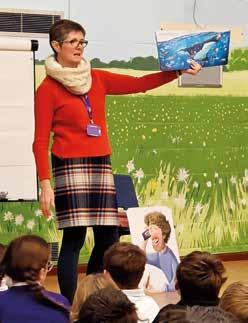
“
THE person who properly drew this book talked to me today in real life. She asked if I liked stories and I said I loved them,” is undoubtedly one of my favourite overheard statements of recent times. It was made by a year 2 child walking across the school playground after a draw-along session led by author and illustrator Mini Grey.
Visits by authors, poets and illustrators have a positive impact on attitudes towards reading and writing, boosting confidence and engagement. Children have gone home happily clutching a picture book signed by Liz Million and then come into school the next day desperate to write and illustrate stories of their own. Pupils who have never previously shown any interest in poetry have marched into the playground carrying armfuls of poetry books to read with their friends following a visit from our former patron of reading, Joseph Coelho.
Earlier this week, excitement levels were high when we were visited by children’s author Fiona Barker. Across the day, there were stories, quizzes, signing and singing, fascinating facts about whales, counting in Japanese, question and answer sessions, and so much more. It was a packed day, with everything geared towards promoting a love of reading, and the children and staff went home on a real high.
Fiona explained: “Going into schools is such a gift. I hope I’m able to inspire children to read more as I know what an impact it can have in all areas of their lives. But I’m also inspired by them – to read more myself, to write more, to write better. Everybody wins.”
Funding in schools has reached (and passed) crisis levels and, as always, the pupils inevitably miss out on many opportunities that would broaden their experiences. A recent study by the National Literacy Trust (NLT) showed that only one in four children will have an author visit during the school year and those from the most deprived backgrounds are more likely to miss out. Jonathan Douglas, director of the NLT, said: “We cannot overstate how important author visits are for sparking a love of reading and writing in children that will ignite their imaginations, enhance their wellbeing and transform their life chances.”
PTA, charities, local bookshops
There are ways to be creative and reduce the financial pressures when organising an author visit. Much of the cost is travel and accommodation, so clusters of local schools can work together and book an author for consecutive days, saving a significant amount. Online visits are an increasingly popular option.
At Moorlands, we have two or three every
year, lasting from 45 to 90 minutes, usually linked to the books we’re reading in class. We recently had a superb session from Catherine Johnson who talked to us about Black British history. We were also able to learn about her writing set-up at home and had a short glimpse into her life as an author.
It’s definitely worth making friends with your local children’s bookshop. They’ll often know when an author or illustrator is in the area, and are always very happy to support school visits. Last year, I talked to our school PTA about the importance of children meeting authors, sharing several quotes about how much they enjoyed them, and they happily agreed to contribute towards the next visit. Many charities and organisations, such as the Ernest Cook Trust, will also support with funding.
Read more ideas from Jon next issue
Financially, it’s going to be harder than ever for schools to engage with authors over the next few months, with many schools struggling to even keep their pupils warm during the day. But that doesn’t mean that the wider purpose of education can be forgotten.
It needs to be enriching and inspiring. It needs to broaden the children’s horizons and raise their aspirations. Writers and illustrators working alongside schools will help significantly in all these areas and, if there’s a way that we can make it happen more regularly, we need to find it.
@jonnybid

Reviews
educate Your magazine from the National Education Union (NEU) 40
(From left) Joseph Coelho exploring Moorlands’ poetree; Fiona Barker reading with KS2 pupils; and Guy Bass signing books
Join our expanding team of book reviewers
You’ll receive great books to review and keep, plus a £30 book token each year. Email educate@neu.org.uk
A Very British Conspiracy
A VERY British Conspiracy details the 27-year campaign for justice following the wrongful prosecution of striking building workers.
Eileen Turnbull leaves no stone unturned when uncovering the series of events and collusions that led to this miscarriage of justice. Her tenacity and unwavering belief in workers’ rights leads the way and would be a thoughtprovoking read for many.
The harsh realities of working-class life in the 1970s and ’80s are laid bare, and comparisons to modern-day treatment and the threat to the right to strike are hard to ignore. An inspiring and dedicated piece of work.
Sian Collinson
A Very British Conspiracy by Eileen Turnbull. Verso books. £16.99.
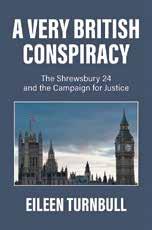
The Teacher Toolkit Guide to Memory
THIS informative book has a wealth of research about learning and the different kinds of memory. Chapters include an overview of the brain, how memory is shaped, and mental models for learning.

Within each section there is an explainer, indicating what the topic is about and the theory behind it. Next, there is a practical idea which shows how to adapt each concept in the classroom. This is followed by a helpful example, and a blank template that can be photocopied or downloaded. Suitable for both primary and secondary teachers.
Cindy Shanks
The Teacher Toolkit Guide to Memory by Ross Morrison McGill. Bloomsbury. £12.99.
The Foster Carer’s Handbook on Education
AN excellent guide showing how to help looked-after children achieve. Recognising that these children can have emotional struggles and learning barriers, the book delivers practical advice for carers, helping them gain a greater understanding of the fostering and educational systems.
Providing facts about education from early years to post-16, Sarah Alix explains the technical jargon and the role of
supporting adults involved in a foster child’s life, such as social workers and virtual school heads. The excerpts and reallife examples are particularly useful, indicating the strategies foster carers and children have used to deal with personal challenges. An indispensable resource for foster carers.
Cindy Shanks
The Foster Carer’s Handbook on Education, by Sarah Alix. CoramBAAF. £14.95.
Howl Like A Wolf
THIS beautifully illustrated book helps children get to know all about 15 amazing animals –from the interestingly named bowerbird to the common honeybee. Each section gives facts and information about the animal with illustrations and diagrams to help with the explanations. Included in this are activities which encourage children to act out things these animals do. For example, they can learn how to cool off like an elephant, balance like a penguin or even build like a beaver.
This is an interesting book which will engage children in finding out about animals in a whole new way.
Sian Sparrow
Howl Like a Wolf by Kathleen Yale, illustrated by Kaley McKenna. Storey publishing. £5.77.

The Thing in the Basement
WHEN Scott passes the basement steps of his new school, he sees something flash and hears a roar. He thinks that there is something down there, but surely it can’t be a dragon… or can it?
The Thing in the Basement is part of the Bloomsbury Readers series, which was created in consultation with experts at the Centre for Literacy in Primary Education. Each book is perfect for supporting children to gain confidence with reading and understanding.
With quirky black-and-white illustrations, this mysterious adventure is sure to grab children who are developing as readers.
Aliss Langridge
The Thing in the Basement by Michaela Morgan, illustrated by Doffy Weir. Bloomsbury. £6.29.
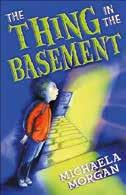
Sarah Alix With Eileen Fursland and Nicola Hill The Foster Carer’s Handbook on Education GETTING THE BEST FOR YOUR CHILD The Foster Carer’s Handbook on Education Sarah Alix found this handbook really useful; it’s something I wish I had read when first became a foster carer because it covers everything you’d need to know. Katie Jones foster carer The practical tips are excellent and empowering, for example really like the sections on helping children with transitions and with home learning. Fiona Darlington-Black Head of Service, Cornerways Fostering Services How can you, as foster carer, best support the education of the children and young people in your care? Many children in foster care get on with school, enjoy it and do well, but some really struggle, their ability to cope with its demands affected by the impact of previous experiences of neglect, trauma and loss. They need understanding and extra support that is not always readily available. You know your child best, so you are likely to know whether she is settling into her new primary school or how well he is coping with the transition to secondary education. Teachers and other school staff need your guidance about how best to help her feel safe and understood in the classroom. This handbook aims to support you in that task and so help your child to have the best possible experience of education, right up to leaving care. You will find information, advice and ideas on: l how early experiences can affect children’s learning the legal framework – what Fostering Regulations and Standards mean for you l the school system – who’s who and what they do moving between classes and school l special needs, exclusion and alternative provision l post-16 education a summary of points at the end of each chapter Throughout the book, personal accounts drawing on the experiences of foster carers, professionals and young people help to bring the topic alive. A must for any foster carer seeking to support the children in their care through school and beyond. £14.95
educate Your magazine from the National Education Union (NEU) 41
Teaching as an art
THANK you so much for the chilling warning in Warwick Mansell’s article (Educate, November/December, page 35).
Over the last 20 years, I have seen the value of teachers’ professional judgement eroded to nearly zero. Oak-style ‘off the peg’ lessons are already being developed and promoted by the academy my school is joining.
We are taken out of the classroom to attend leadership or curriculum meetings run in a manner similar to a commercial company. Indeed, one training course leader spent a meeting that I attended promoting a conference organised by a company of which she was a director.
Is this because we are trying to promote evidenced-based teaching? I think that most of the evidence cited to promote new strategies (including Ofsted’s phonics drive) is so biased it
would make a pharmaceutical company blush… and I used to work for one so have some insight there.
We need to value teaching as an art. Experience, gut instinct and sheer love of teaching should drive what we do to improve our students’ education. We have a national curriculum so surely that should cover the ‘must do’?
How we, professional teachers, deliver that curriculum should look different each and every time we teach a lesson. Our changing experience, the dynamics in our classroom, the available resources, even the weather (yes, I’m one of those teachers who wants to take their science lessons outside when it’s snowing) should influence our real-time, in-class decisions. We need a rough plan, but one that is flexible to allow adjustment to changing situations and adaptation to individual children’s needs. We need
freedom, not prescription, to be the best teachers we can.
Professionally, I’m feeling frustrated and rather sad at the way things are developing. Any advice?

Sally Bone

Simple solutions
young people. We’ve chosen “improving deaf awareness in education” as our priority and called the campaign Hands Up! – this was because we’d all experienced poor deaf awareness in the classroom. If it’s common in small group, how many are suffering across the UK? Too many. Education is right, not privilege, yet the lack of deaf awareness training in schools means deaf students miss out. Meeting pupils’ communication needs Deaf awareness is understanding how to include deaf person and meet their communication needs in any situation. Poor deaf awareness in the classroom – like not facing the class when speaking or showing videos without subtitles – can be catastrophic. Yet with the right knowledge, it’s easily prevented. It’s important to remember, however, that no two deaf people are the same and what works for one might not work for another.
PHOTO by Amit Lennon Photography
Through seemingly small actions in the classroom (such as moving around when speaking), poor deaf awareness accumulates, impacting academic success. In 2021, England’s deaf pupils achieved whole GCSE grade lower than hearing children on average, for the sixth year running. There are similar gaps in Scotland, Wales and Northern Ireland. In survey we conducted, one in three deaf students (31 per cent) said most or all of their teachers showed poor deaf awareness. This isn’t surprising though research also shows two a deaf pupil. This hits deaf students beyond the education system, as there isn’t equal access to career opportunities. The isolation can also affect their mental health. Compulsory training for teachers We’re calling for compulsory deaf awareness training for teachers; a step towards closing the gap between deaf and hearing pupils. In March, our online petition asked the then School Standards Minister Robin Walker for this and it’s already passed 80,000 signatures. We’d like to see compulsory deaf awareness training in initial teacher training and regular follow-up training sessions. This can ensure all deaf pupils are included in the classroom, helping them achieve their full potential. Currently only three per cent of teachers feel their teacher training gave them the information they need to meet deaf pupils’ needs. Deafness isn’t learning disability, so improving access to lessons can help deaf pupils thrive in class. This will be a significant step in breaking down the barriers deaf children and young people are currently facing in schools, improving the lives of 50,000 across the UK.

I AM writing to thank Polly Button for her brilliant article (Educate, September/October, page 50).
She clearly articulates not only the problems that deaf children face, but also offers simple solutions that would
enable a huge number of children a better quality of education and lifelong benefits.
Having grown up as a partially deaf child, I spent many wasted and uncomfortable hours at school unable to access conversations with my peers and teachers. The majority of my teachers had no idea how to make their lessons more inclusive and did not understand my needs. It saddens me greatly that 40 years later little has changed in terms of teachers’ training, and children are still facing similar barriers.
My experience of several years working in the classroom, where I regularly came up against school leaders and colleagues who, aware of my hearing loss, did not even show basic deaf awareness, also brings me to the conclusion that much more needs to be done. Only by speaking out will the needs of deaf children be heard.
L James, Worcestershire
This
Chloe
Teacher’s pets Pebbles, BamBam and Maverick Letters 42 educate Your magazine from the National Education Union (NEU) If you have a treasured pet you’d like to show off, email a high-resolution photo with 50 words about what makes them so special to educate@neu.org.uk Final word Fact file Polly Button 17, is severelyprofoundly deaf student who uses two hearing on the National Deaf Children’s Society Young People’s Advisory Board. Visit ndcs.org.uk Final word Hands Up! to improve deaf awareness STUDENTS everywhere are battling to catch up on what they missed during the pandemic. They’re also getting ready for some of the biggest educational milestones they’ll face. As deaf student, this can be even harder. Two thirds found online lessons difficult to understand during lockdown. When we returned to school, face masks made lip reading impossible and facial expressions so much harder to read. Deaf children were already at disadvantage. Did you know deaf children achieve less than hearing children at every stage of school? It’s because there’s a real lack of support. I’m part of the National Deaf Children’s Society (NDCS) Young People’s Advisory Board –18 deaf young people campaigning for the UK’s 50,000 deaf children and
Letters
trio of
guinea
pigs are the pets of Chloe Gerstenmayer, a nursery teacher from Cheltenham.
says: “My fabulous three amigos
became
YouTube sensations during lockdown 2020, helping me to teach
children
around the world as Furry phonics with Mrs G. They are always so pleased to see me, running over and squeaking loudly with delight.”
“Poor deaf awareness in the classroom can be catastrophic, but it is easily prevented.”
Star letter
I’M a retired NEU member and also a governor at Coppull Primary School and Nursery, in Lancashire. I’ve been interested in global heating issues and sustainability for a long time and have been keen to see the curriculum in the school address them. I’ve been pushing at an open door.








Some years ago, we bought an automatic weather station for the school, part-funded by myself with a contribution from school funds. The weather is continuously monitored with the data available for children to use in science and maths. We have a feed to the school website so that the current weather in the village can be seen widely.
A couple of years ago, I felt we should address the urgent need to tackle the net zero issue. It was 2020, with 30 years to go until 2050 (the year by which the UK has resolved to end its contribution to global warming), so I gave the school a donation of £3,000, so that each year for
the next 30 years, a prize of £100 could be awarded for the best idea.
Along with the winnings, we award a sustainability and carbon zero award (pictured above) showing an image of Earth taken from space as part of the NASA series of photographs – Coppull

is at the centre of this particular photograph.
We can all have our ways of helping to save the planet. This is my personal way, involving children, families, teachers, governors and all those working in school. It will work.
Richard Toon, Lancashire
Update your membership details – visit my.neu.org.uk


IT’S vital that the NEU has up-to-date details for all its members. You may be eligible for reduced subscriptions – for example, if you work part-time, are about to retire or take maternity leave.
It’s important that we have the correct address for you for balloting purposes so, if you have moved, make sure you tell us your new home or workplace address.
The easiest way to update your details is by logging on to myNEU. Go to my.neu. org.uk to manage your membership,


including updating your address, workplace, and equality information.
Alternatively: n call us on 0345 811 8111 (Monday to Friday, 9am-5pm) n email membership@neu.org.uk n or write to Membership & Subscriptions, NEU, Hamilton House, Mabledon Place, London WC1H 9BD.
 Please write The editor welcomes your letters but reserves the right to edit them. Write to Letters, Educate, NEU, Hamilton House, Mabledon Place, London WC1H 9BD or email educate@neu.org.uk Please note we cannot print letters sent in without a name and postal address (or NEU membership number), although we can withhold details from publication if you wish.
Please write The editor welcomes your letters but reserves the right to edit them. Write to Letters, Educate, NEU, Hamilton House, Mabledon Place, London WC1H 9BD or email educate@neu.org.uk Please note we cannot print letters sent in without a name and postal address (or NEU membership number), although we can withhold details from publication if you wish.
‘We can all help to save the planet’
educate Your magazine from the National Education Union (NEU) 43
“We have a prize of £100 for the best idea and a sustainability and carbon zero award.”

Tackling barriers for girls in sport
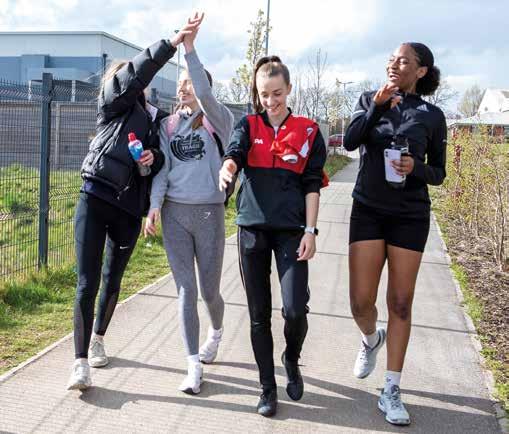
Take your learning outside
OUTDOOR education charity the Field Studies Council (FSC) has launched a new digital hub to help educators support students with outdoor learning and fieldwork skills.

Resources include Geographic Information System (GIS) story maps, videos presented by FSC’s experienced tutors, worksheets and CPD materials suitable for students taking GCSE geography and GCSE and A-level biology. The hub resources are designed to complement the FSC’s existing free teaching materials.
n Visit bit.ly/3X4JG2U
Scribblers on tour in Wales
THE Big Sister project aims to tackle the barriers to girls’ participation in sport by creating a supportive network of ‘big sisters’ – peer leaders and supporters from schools and sports organisations.
The project, set up by Women in Sport in collaboration with Hey Girls, Places Foundation and Places Leisure, also offers a
wealth of free information, online resources and practical support to help girls navigate their journey through puberty and exercise, and reclaim the joy of sport and exercise. They would love to hear from young women aged 14 to 25 years old who are happy to share their experience, and who can act as a big sister for other girls facing similar challenges.
n Visit big-sister.co.uk
Meaningful connections for mental health
CHILDREN’S Mental Health Week takes place from 6-12 February. The theme –Let’s Connect – is about the importance of making meaningful and rewarding connections with others as a way of supporting mental wellbeing.
Educators can download free resources suitable for primary and secondary school settings, including assembly guides, slides and group activities.

n Visit childrensmentalhealth week.org.uk
THE Hay Festival Scribblers Tour takes place from 6-17 February in universities across Wales. Best-selling authors and poets, including Femi Fadugba, Matt Goodfellow and Jenny Valentine, will deliver free, interactive workshops for key stage 3 and 4 students to help inspire a passion for storytelling, reading and writing.

There are free teaching resources, produced in collaboration with authors and publishers, which are designed to complement the festival workshops.
n Visit hayfestival.com/the-scribblers-tour
Noticeboard educate Your magazine from the National Education Union (NEU) 45























educate Your magazine from the National Education Union (NEU) 46 LIVE IN OR AROUND NORTH LONDON? Qualified teachers needed to teach motivated pupils on weekday evenings and/or Saturdays WE OFFER GREAT RATES l Primary Years 1 - 6 l Secondary Maths l Secondary Science l Secondary English 020 8440 8586 www.afterschoollearning.com Established 2007 Please email CV to: info@afterschoollearning.com WE NEED YOU! InDependent Diabetes Trust P O Box 294, Northampton NN1 4XS www.iddtinternational.org Charity Number: 1058284 Registered Number: 3148360 DO YOU HAVE A CHILD IN YOUR CLASS WITH DIABETES? ASK FOR YOUR FREE COPY TODAY A charity suppo ting and listening to people who live with diabetes www ddtinternational org enquiries@iddtinternationa .org DIABETES – PARENTS PASSPORT FOR SCHOOLS This passport is to assist school staff in meeting my child’s diabetes needs IT GIVES SCHOOL STAFF IMPORTANT INFORMATION ABOUT MY CHILD AND SHOULD BE AVAILABLE TO EVERYONE RESPONSIBLE FOR THEIR CARE INDEPENDENT DIABETES TRUST Type 2 Diabetes Management and Medication HELPLINE: 01604 622837 www.iddtinternational.org A charity supporting and listening to people who live with diabetes Diabetes What Schools Need To Know charity and to who live with diabetes HELPLINE: 622837 TELEPHONE: 01604 622837 or EMAIL: martin@iddtinternational.org DIABETES – PASSPORT FOR SCHOOLS DIABETES – WHAT SCHOOLS NEED TO KNOW Get noticed with your advert here For more information, contact: Tel: +44 (0) 20 7880 7614 Email: educate-magazine@redactive.co.uk Your magazine from the National Education Union Welfare at work Happy teachers make good teachers. See page 22. Cost-of-living crisis Scandal of in-work poverty in education sector. See page 25. Pay ballot NEU to ballot members for a decent pay rise. See page 7. September/ October 2022 Walkin’ on sunshine Tolpuddle marchers’ joyful celebration of solidarity Your magazine from the National Education Union September/ October 2022
Chorizo, vegetable and egg slices

Photo opportunity
Ingredients
1 onion, chopped 125g chorizo, chopped Broccoli, half a head 150g frozen peas Parsley, chopped 1tsp paprika
6 eggs 50g cheddar cheese
Method
1. Line a 10in by 10in baking tray.
2. Fry the onion until soft, then add the chorizo and fry until oil is released.
3. Chop the broccoli into small florets and add to the chorizo and onion mixture along with the peas, chopped parsley and paprika.
4. Fry until the mix softens and then turn off the heat.
5. Separately whisk the eggs then add to the mixture so it is fully coated.
WIN! Send us your recipe to win a £20 book token
6. Pour into the baking tray and grate the cheese evenly over the top.
7. Bake in the oven for 15 to 20 minutes or until all the egg is cooked.
THIS atmospheric photo was taken by Carrie O’Riordan, a geography teacher in Cambridgeshire.
Carrie says: “This photo of a group of teasels was taken one evening as it was getting dark at our local nature reserve. We had just stood for nearly an hour watching a starling murmuration. I love how the inky blue darkness behind the teasels really makes them stand out.”

If you are a keen photographer, why not send your pictures to us at educate@neu.org.uk
They should be large and high resolution, accompanied by 50 words telling readers about the subject. We send a £20 book token to each featured so don’t forget to pop your address on the email too.
WIN! Send us your photo to win a £20 book token
What’s in your lunchbox?
Helen Jones, a teacher from Essex, says this recipe is great for batch-cooking and “the high protein, low carb makes me feel less guilty about having cake at break time”.
educate Your magazine from the National Education Union (NEU) 47
Quick crossword
Across
1 Capital of Bosnia and Herzegovina (8) 5 Red crest on the head of male domestic fowl (4) 9 Alfred ___ : Swedish chemist who invented dynamite (5) 10 US state whose capital is Boise (5) 11 George ___ : First US President (10) 14 Isaac ___ : author of the Robot series (6) 15 John ___ : one of the Beatles (6) 17 Soap opera set in Albert Square (10) 20 Long flat cut of beef (5) 21 Star sign (5) 22 Culinary herb (4) 23 Element with atomic number 1 (8)
Down 1
Yellowish-brown substance that forms beaches (4) 2 Precious stone that is typically red in colour (4) 3 US actress in Erin Brockovich (5,7) 4 Jon ___ : US actor and father of Angelina Jolie (6) 6 Bedtime drink (8) 7 Robert ___ : Victorian poet (8) 8 Actress in Good Will Hunting (6,6) 12 ___ the Great: a powerful Egyptian pharaoh (8) 13 Variety of wine grape grown in Germany (8) 16 Space ___ : David Bowie song (6) 18 Tail-less amphibian (4) 19 ___ of Arc: a patron saint of France (4)
Across
1 - Capital of Bosnia and Herzegovina (8) 5 - Red crest on the head of male domestic fowl (4) 9 - Alfred ___ : Swedish chemist who invented dynamite (5) 10 - US state whose capital is Boise (5) 11 - George ___ : First US President (10) 14 - Isaac ___ : author of the Robot series (6) 15 - John ___ : one of the Beatles (6) 17 - Soap opera set in Albert Square (10) 20 - Long flat cut of beef (5) 21 - Star sign (5) 22 - Culinary herb (4) 23 - Element with atomic number 1 (8)
Down
1 - Yellowish-brown substance that forms beaches 2 - Precious stone that is typically red in colour (4) 3 - US actress in Erin Brockovich (5,7) 4 - Jon ___ : US actor and father of Angelina Jolie 6 - Bedtime drink (8) 7 - Robert ___ : Victorian poet (8) 8 - Actress in Good Will Hunting (6,6) 12 - ___ the Great: a powerful Egyptian pharaoh (8) 13 - Variety of wine grape grown in Germany (8) 16 - Space ___ : David Bowie song (6) 18 - Tailless amphibian (4)
- ___ of Arc: a patron saint of France (4)
48 educate Your magazine from the National Education Union (NEU)
Answers at bottom of page 49
1 2 3 4 5 6 7 8 9 10 11 12 13 14 15 16 17 18 19 20 21 22 23
Sudoku 8 3 2 6 8 4 3 1 3 5 8 7 9 7 9 8 1 4 1 9 7 3 4 3 5 7 9 1 8 6 4 6 2 2 3 1 2 5 7 9 8 3 2 5 7 2 8 8 3 4 6 5 1 7 3 1 6 7 4 9 1 5 9 4 5 3 4 1 6 8 3 2 6 4 8 3 5 9 5 1 9 4 5 Easy Medium Difficult Sudoku solutions will feature on this page next issue. Last issue’s (Nov/Dec 2022) sudoku solution (from left: Easy, Medium and Difficult) 3 2 9 1 5 8 4 7 6 6 4 5 2 7 9 1 8 3 8 1 7 4 6 3 5 2 9 7 3 1 8 9 6 2 5 4 4 9 6 5 1 2 7 3 8 5 8 2 7 3 4 9 6 1 2 7 3 6 4 1 8 9 5 9 5 4 3 8 7 6 1 2 1 6 8 9 2 5 3 4 7 3 5 2 6 4 1 9 8 7 8 6 1 7 3 9 2 4 5 4 7 9 5 2 8 3 6 1 6 3 7 1 8 2 4 5 9 9 8 4 3 7 5 1 2 6 1 2 5 4 9 6 8 7 3 7 1 3 2 6 4 5 9 8 5 4 8 9 1 7 6 3 2 2 9 6 8 5 3 7 1 4 5 9 4 2 1 3 8 6 7 6 3 7 5 4 8 1 9 2 2 1 8 7 6 9 3 5 4 3 4 6 1 5 7 9 2 8 8 7 9 6 3 2 5 4 1 1 5 2 8 9 4 7 3 6 9 6 5 4 8 1 2 7 3 7 8 3 9 2 6 4 1 5 4 2 1 3 7 5 6 8 9
19
14
17
18
19
22
13
12
8
They continually beat some of the art school (6)
9
16 Graduate set up by friends (5) 20 & 21 Private fee-paying establishments – or maybe ‘posh social club’ with no end of wonga! (6,7)
Shine brightly in new singlet (7)
23
Spaceship’s target includes the Sun, perhaps (4)
educate Your magazine from the National Education Union (NEU) 49 Prize crossword Send your completed crossword, with your contact details, to: January/February crossword, Educate, NEU, Hamilton House, Mabledon Place, London WC1H 9BD, or email a photographed copy to crossword@neu.org.uk. Closing date: 31 January. WIN! A £50 Marks & Spencer voucher Across 1 SARAJEVO 5 COMB 9 NOBEL 10 IDAHO 11 WASHINGTON 14 ASIMOV 15 LENNON 17 EASTENDERS 20 SKIRT 21 VIRGO 22 SAGE 23 HYDROGEN Down 1 SAND 2 RUBY 3 JULIA ROBERTS 4 VOIGHT 6 OVALTINE 7 BROWNING 8 MINNIE DRIVER 12 RAMESSES 13 RIESLING 16 ODDITY 18 FROG 19 JOAN
27
This 28
issue’s quick crossword solution (p48) 12345 16 7 89 10 11 12 13 14 15 16 17 18 19 20 2122 23 24 25 26 27 28 29 30 31 Visit cornmarketinsurance.co.uk/neu Call 028 9044 5086 Your new NEU Insurance Partner Home Car Travel Motorbike Gadget 14255 NEU Crossword Page Image v2 01-19.indd 1 30/01/2019 14:48 Last issue’s (November/December 2022) prize crossword solution Across 1 TREACHEROUS 9 DIGNIFIED 10 AGAIN 11 LARKIN 12 INFERIOR 13 REPEAL 15 TROPHIES 18 CHOOSING 19 LAWYER 21 ATTORNEY 23 UNUSED 26 TIRED 27 DALAI LAMA 28 RUGBY LEAGUE Down 1 TODDLER 2 EAGER 3 CRIMINALS 4 EPIC 5 ORDINARY 6 SPACE 7 IGNORES 8 NATIVITY 14 PLOTTERS 16 PLAINTIVE 17 UNDERDOG 18 CHASTEN 20 RED TAPE 22 RIDER 24 SLANG 25 PLAY
Across 1 School subject that might make my set rich! (9) The winner and solution of this prize crossword will feature on this page next issue. Congratulations to last issue’s winner – Stella Ogilvie from Milton Keynes
I leave dreadful recital to find wine! (6)
Some days start with a fizzy drink (4)
Is of the opinion that money paid to school includes introduction to Latin (5)
In school I’m eating fruit (4)
Stays for new seminar (7)
Concerning top-flight celebrities, he takes a practical view (7)
They pinch small children (7)
Unexplained fault when men tangle with girl! (7) 24Reverse some ASBO measures for unruly gangs (4) 25 Poor Archie lacks energy for professorship (5) 26 Moderately good foxtrot tune (4) 29 French restaurant – Bristol, sadly, left out (6) 30 She met different subjects (6) 31 Nasty iron press for those in the dungeon? (9) Down 2 & 15 I had terms to prepare for this Dickens novel (4,5) 3 Becomes proficient in this kind of degree? (7) 4 New clues are mostly nothing to do with religious matters (7) 5 Starts to read English at Manchester – a lot of paper! (4) 6 Models redesigned, but not often (6) 7 Imagine moving without a star sign! (6) 10 Tory moans about this science subject (9) 11 Any recent changes to this celebratory event? (9) 15 See 2 down
22
Departs with pieces of paper (6)
Clothing that’s changed in car? (4)
History too often excluded from schools
Fact file
Charles Golding is a creative director and filmmaker. He is the cofounder of CARGO Classroom. Visit cargomovement. org/classroom

CHARTING African Resilience Generating Opportunities (CARGO) is an independent creative collective that works in the fields of education and culture.
I founded CARGO in 2019 alongside Bristol poet Lawrence Hoo. Our organisation works to celebrate the resilience and visionary leadership of individuals of African and African diaspora descent who have catalysed change and moved society forward. CARGO puts forward those missing narratives from our shared past and present, in order to inspire the public to visualise a future full of pride and possibility.
Thrown out of six secondary schools, Lawrence remembers looking in the pages of textbooks and thinking that no one who achieves anything looked like him. They were all white. Now, with children of his own, he acutely realises the importance of representation within the material that is taught in schools. Lawrence and I have been long-time collaborators working together on documentaries and art installations to help highlight hidden histories and marginalised narratives.
We created CARGO Classroom, a series of educational resources,
BBC documentary on CARGO
THE Classroom Revolution is a 30-minute BBC 1 documentary, available on iPlayer, which follows Lawrence and I on our mission to educate Bristol’s teachers on the history and narratives all too often excluded from schools.
The documentary gives rare access to the recording studios of one of Bristol’s most iconic bands, Massive Attack. As long-time supporters of our work, they record material for the lessons before hosting a training day for secondary school teachers in a disused warehouse on the outskirts of Bristol. The film follows up with teachers who have taken what they’ve learnt back to their own classrooms for an insight into what the pupils themselves think of the lessons. Visit bbc.in/3tyPhRw
to address the lack of representation across the curriculum. These resources are designed with accessibility at their core (and supported by the NEU). Found on the CARGO Classroom website, the digital packages foreground rich visual media and are free.

The resources utilise poetry, imagery and film to enhance the enjoyment of the learning experience. They provide uniquely positioned tools to incorporate African and African diaspora histories into taught lessons.



CARGO Classroom hopes to counter the skewed versions of global history that participate in reproducing inequalities in society. The primary focus is enrichment through education, readdressing the imbalance of a Eurocentric curriculum by shining a light on the accomplishments, achievements and contributions of individuals often overlooked or misrepresented in history. I believe that if we bring up children within a monoculture, they stand to gain less than individuals who have a broader understanding of the wider world around them.
The CARGO series of digital lesson resources are designed not as a replacement for the current curriculum, but as an addition to enhance and add value to current teachings. Among a plethora of historical events not taught in mainstream schools, the lessons cover individuals and events including Nanny of the Maroons, Queen Nzinga and the Haitian revolution. Practical skills for teaching inclusive history (visit bit.ly/3g4h3SG ) is a new online course on the Future Learn platform tailored to help educators integrate the CARGO materials.
Final word
educate Your magazine from the National Education Union (NEU) 50

We use collective savings deposits to support mortgage lending like other building societies. But because we’re a specialist teacher mortgage lender, when you choose to save with us, you are directly helping us lend to more teachers so they can buy their first homes. So when you save, you’re not just helping yourself; you’re helping us help teachers - we think that’s something special.
www.teachersbuildingsociety.co.uk
 Teachers Building Society, Allenview House, Hanham Road, Wimborne, Dorset BH21 1AG. Authorised by the Prudential Regulation Authority and regulated by the Financial Conduct Authority and the Prudential Regulation Authority (Reg No. 156580)
Teachers Building Society, Allenview House, Hanham Road, Wimborne, Dorset BH21 1AG. Authorised by the Prudential Regulation Authority and regulated by the Financial Conduct Authority and the Prudential Regulation Authority (Reg No. 156580)
inwales
Issue 72 Spring term 2023
Conference sets out road ahead
CHANGES to additional learning needs (ALN) provision in schools have increased workload to unmanageable levels, the union’s fourth Cymru conference heard.
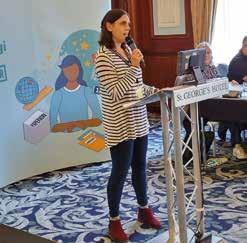
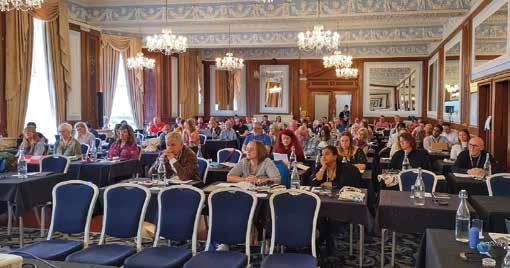

This was just one of the issues raised at the two-day event held at St George’s Hotel in Llandudno last October, which was attended by officers and representatives from NEU Cymru’s 22 branches and districts.
The conference was chaired by Emma Rose, NEU senior national vice-president, and the guest speaker was Roger McKenzie, general secretary of the human rights organisation Liberation. The 20 motions debated over the weekend included reform of the school year, assessment for the 21st century, mental health and mindfulness, and changes in the further education sector.
Long Covid remains a cause for concern and a motion from Newport branch called for raised awareness and fair treatment for employees suffering from the condition, which it said should be recognised under the Equality Act.
The issue of the Welsh Government (WG) consultation on reform of the school day and term times was debated in a motion from Blaenau Gwent district, which called on the WG to commission research exploring the impact of any changes. Last year an NEU Cymru survey showed that 87 per cent of members were concerned about possible reforms.
Under the ALN transformation programme introduced last September, all learners newly identified as having special needs will be supported through a new system of individual development plans (IDPs). But motions from Caerphilly and Denbighshire branches raised the extra workload that the programme and IDPs have created. Caerphilly “noted with alarm” that drawing
up just one IDP can take several hours. The conference agreed to raise the matter with the WG and to work with other education unions to prioritise teachers’ time to teach in the classroom.

NEU Cymru policy officer Stuart Williams said: “The issues facing members in Wales are unprecedented in recent times and
it’s vitally important that our members decide what issues they want to raise with the Welsh Government and, in particular, the Minister for Education and Welsh Language. We have received a clear policy direction that will guide all of our future discussions with the WG, and we look forward to working closely with it.”
n The next conference will be held in October.
educate in Wales Your magazine from the National Education Union (NEU) 1
Post your vote today Pay ballot closes on 13 January.
Tackling poverty Making learning more accessible.
Wellbeing toolkit ‘Every education setting is different.’
(Above) Conference took place at St George’s Hotel in Llandudno (Below left and right) Torfaen branch secretary Sophie Toovey, and Roger McKenzie from Liberation
NEU Cymru’s WULF project launches wellbeing toolkit
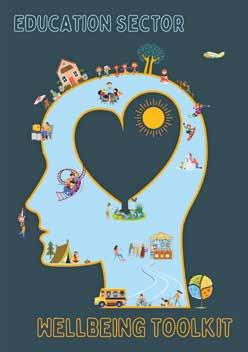
THE first in a series of practical toolkits for educators focuses on a whole-school approach to wellbeing.
The wellbeing toolkit was launched at a special event at Cardiff City Stadium in September, attended by education professionals and organisations which support people with their mental health and wellbeing. Representatives from local authorities and third-sector groups also attended and were able to share their expertise.
The toolkit has been devised by NEU Cymru’s Wales Union Learning Fund (WULF) project, which is developing a series of practical tools to support schools.
Project co-ordinator Beth Roberts said the toolkit was by no means prescriptive. “It recognises that every education setting is different and encourages a team approach to effecting positive change,” she said.
“The toolkit is not designed to tell
schools what to do or how to do it. There is no ‘quick fix’ to improving wellbeing. It will take time and will need careful management if the changes planned are to be impactful and sustainable.”
Over the next two-and-a-half years, the WULF project is looking forward to further developing the toolkit with training and resources, in partnership with Public Health Wales, NEU Cymru districts and branches, and other stakeholders.
Beth added: “We welcome opportunities to engage with individuals, schools, colleges, local authorities and other stakeholders to make the whole-school approach to wellbeing a holistic and inclusive endeavour that benefits all.
“The WULF project is developing a series of practical tools, such as the toolkit, to help schools in developing their own strategies and framework in conducting their
Learning dates for your diary
TRAINING FOR REPS
Three-day foundation and advanced reps courses can be attended in one block or modularly over three separate days.
We also continue to deliver courses virtually with six, weekly sessions running from 4-6pm for all attendees.
Courses have been arranged subject to numbers and Welsh Government guidelines, on the following dates.
Foundation courses
1-3 February – Diplomat Hotel, Llanelli neu-cymru-reps-training-foundationsouth-1-3-feb-23.eventbrite.co.uk
17-19 May – Bangor neu-cymru-reps-training-foundationnorth-17-19-may-23.eventbrite.co.uk
Advanced courses
6-8 March – Village Hotel, Ewloe neu-cymru-reps-training-advancednorth-6-8-mar-23.eventbrite.co.uk
22-24 March – Diplomat Hotel, Llanelli neu-cymru-reps-training-advancedsouth-22-24-mar-23.eventbrite.co.uk
Employment law
24 April – Cardiff neu-cymru-repstraining-employment-24-4-23. eventbrite.co.uk
Negotiating (redundancy)
16 February – Conwy Business Centre, Llandudno Junction neu-cymru-reps-training-negotiatingnorth-16-2-23.eventbrite.co.uk
16 February – Miskin Manor Hotel, Miskin neu-cymru-reps-trainingnegotiating-south-16-2-23. eventbrite.co.uk
audits and planning any changes that might be needed.”
n For more information on the wellbeing toolkit or training, email beth.roberts@neu.org.uk
If you are interested in becoming a workplace rep and attending one of the courses, email cymru.wales@ neu.org.uk
Reps are legally entitled to attend this training – the NEU will support any rep who has difficulties getting time off work to attend.
MORE COURSES THROUGH WULF
Courses are also available through the Wales Union Learning Fund (WULF) project. A regularly updated list of topics can be found at eventbrite.co.uk/o/ national-education-union-cymrutraining-10916965546 with information on how to register.
If you would like the union to consider organising a particular course, email either lisa.williams@neu. org.uk or beth.roberts@neu.org.uk
Check your email inbox for information on the latest training opportunities. Like us on Facebook at facebook.com/ neucymrutraining, follow us on Twitter at @neucymrutrain and visit neu.org.uk/learning-and-events
educate
2 News
in Wales Your magazine from the National Education Union (NEU)
LEARNING is at the heart of NEU Cymru and we take pride in the local training that we provide for education professionals, local officers and workplace representatives.
Missed something? Read back issues of Educate in Wales, in English and in Welsh, at neu.org.uk/educate-wales
‘Holly opened up our son’s world’
HOLLY Gordon was training to be a drama teacher when she did a week’s work experience in an autism special school – a week that changed the direction of her career path.
Now in her third year as a teacher, she leads a team working with non-verbal children aged eight to 12 at Ysgol Bryn Derw in Newport, Gwent, and says: “I can’t put into words how much I love this job.”
Her enthusiasm and dedication for her work won Holly the Outstanding New Teacher of the Year award in the 2022 Professional Teaching Awards Cymru, and silver in the finals of the Pearson National Teaching Awards in November.

‘Pupils walk in with a smile and leave even happier’
Nominating her for the Welsh award, her head teacher Richard Drew described how Holly has transformed pupils’ past difficult education experiences and made them love learning.
“They walk in every day with a smile on their face and they leave every day even happier,” he said.
Holly started work at Ysgol Bryn Derw during the pandemic when schools were closed and teaching was online. She explains how she made videos, not so much for the pupils but more for their parents, describing songs they could sing and activities they could do to stimulate their children.
One parent describes how Holly helped them with their son: “She just opened his world for us, because we were exhausted with figuring out ways that we could open it and how we could expand it.”
New ALN programme ‘puts pupils first’
Ysgol Bryn Derw is a local authority special school for children with autism and associated learning difficulties, the only one of its kind in the Gwent region. Holly says much of the pupil-centred approach in
the new additional learning needs (ALN) transformation programme had already been engrained in the work of the school since it opened in 2017. “The way that it works, putting pupils first, means their basic needs are met – it makes sense,” she explains.
Holly has now taken on training and learning responsibilities (TLR) for two colleagues, and mentors two newly qualified teachers. And even after a really hard day, she says of her job: “The rewards are so great, I absolutely love it.”
Pay ballot: last chance to post your vote
WITH support staff accessing food banks in some schools and teachers leaving the profession in droves, NEU Cymru says the Welsh Government should not underestimate the strength of feeling among educators.
Following a resounding preliminary ballot in October, the union went ahead with a formal ballot asking teacher and support staff members: “Are you prepared to take strike action in furtherance of this dispute?” The ballot closes on 13 January.
Each dispute is about the failure to give a commitment for a fully funded aboveinflation pay rise (as measured by the Retail Prices Index in September 2022).
David Evans, NEU Cymru secretary,
warned that if the pay increase is not fully funded there will be more cuts to children’s education as local authorities struggle to balance the books.
“We must ensure that enough money is devolved from Westminster to Cardiff Bay to fund teachers’ pay rises and education in general. The union wants to work with the Welsh Government to make that a reality at a time when education funding here in Wales is in crisis.”
He said members were reluctant to strike but added: “The strength of feeling should not be underestimated. Pay, along with workload, lies at the root of a recruitment and retention crisis with 29 per cent of teachers in Wales leaving within the first five years of teaching.
“And we are now seeing school support
staff accessing food banks too. This should be of deep concern to the Welsh Government –it needs to act now.”
Teachers have lost 20 per cent in real terms since 2010, and for support staff in the same period the loss stands at 27 per cent.
David added: “Our members want to be in school, teaching children. But they have been undervalued for too long, and the Welsh Government’s refusal to fully fund the inadequate pay rise for 2022/23 is the final insult. We repeat our willingness to meet with the Welsh Government to find a serious answer to more than a decade of declining pay.”
(NEU) 3
educate in Wales Your magazine from the National Education Union
The National Education Union and our sister unions are demanding a fully funded, above-inflation pay rise for teachers. We are the NEU – join us. neu.org.uk/join 0345 811 8111 in our electronic ballot 24 September to 5 October to let the Government know our strength of feeling about the pay cut. VOTE for industrial action in November for an above-inflation pay rise if the Government doesn’t listen. VOTE TEACHERS DESERVE BETTER
Holly with her award
Here to help
AS part of the largest education union in Europe, NEU Cymru can offer members an unrivalled service.

Our professional team is here to provide expertise to our network of workplace representatives and district and branch secretaries.
If you have a problem at work or want to know more about member services, contact: n your workplace representative n your branch secretary n AdviceLine n NEU Cymru office.
NEU Cymru
Ty Sinnott, 18 Neptune Court, Vanguard Way, Cardiff CF24 5PJ
Tel: 029 2049 1818 Email: cymru.wales@neu.org.uk
Wales secretary: David Evans
Senior Wales officers: Gareth Lloyd, Debbie Scott
Senior Wales policy officer: Mary van den Heuvel
North Wales organiser: Cai Jones South Wales Organiser: Robert Goddard
Wales solicitor: Angharad Booker
Executive members: Máiréad Canavan, Elizabeth McLean, Hannah O’Neill
Head office
National Education Union, Hamilton House, Mabledon Place, London WC1H 9BD
Tel: 020 7388 6191
Website: neu.org.uk
President: Louise Atkinson
Joint general secretaries: Mary Bousted & Kevin Courtney
Translation by Rhys Iorwerth Cyf rhysiorwerth@ hotmail.com
Tackling poverty together in Wales
NEU Cymru has joined forces with charities Child Poverty Action Group (CPAG) and Children North East to create a guide to help make learning more accessible for children and families living in poverty in Wales.
The guide – Tackling poverty together – has sections written by education and poverty specialists from the three organisations, drawing on learning and examples from their existing projects and research.

It includes the perspectives and experiences of children, young people and their families, as well as contributions from NEU members across Wales, frontline researchers in schools, practice advisers, communication experts and policy specialists.
At a Senedd event to launch the guide, one NEU member said pupils in her school were experiencing levels of poverty that were “heart-breaking for both pupils and staff”.
Describing the range of challenges for children in families on low incomes, she said: “A child can’t be hungry for
Support staff steering group
NEU Cymru is part of a steering group looking to create parity for support staff terms and conditions across Wales. Support staff are often on part-time and term-time only contracts.
The group, set up by the Welsh Government, includes trade union representatives, the Education Workforce Council, local authorities and members of the education workforce.
NEU Cymru welcomes free school meals
announcement PLANS by Education Minister Jeremy Miles to continue free school meals up to and including the February half-term holiday have been welcomed.
NEU Cymru secretary David Evans said that with the spiralling cost of living, it was critically important children received a healthy meal to help support their wellbeing.
He added: “It is also welcome that the minister reiterated the Welsh Government’s commitment to universal primary free school meals
knowledge if they are just plain hungry. Schools should be filled with the sounds of children’s laughter and not the rumbling of tummies. We need to ensure nothing gets in the way of our pupils’ learning and our teaching.”
Ellie Harwood, Wales development manager for CPAG’s UK project, Cost of the School Day, said: “We know schools are always working hard to support children in poverty. We’ve created this new resource by listening to what children, schools and families tell us helps them the most.
“We hope it will provide a useful guide for every school looking to support their community through these difficult times.”
by September 2023. We believe this is going to be critical to help support children in their learning, and make sure that children have access to a hot meal every day.”
The union would welcome these commitments going even further to include secondary school children and support for families in the holidays beyond February, he said.
Qualified for the future
REGULATORY body Qualifications Wales (QW) spent several weeks last autumn consulting on proposals for 26 new GCSEs and other related qualifications.
The independent organisation is responsible for regulating general and vocational qualifications. QW said it was confident that the content and assessment of the qualifications would help schools make a success of the new Curriculum for Wales and prepare learners for life, learning and work.
QW will be presenting its findings and asking for members’ views again in early 2023.
4 News
educate in Wales Your magazine from the National Education Union (NEU)
Trechu tlodi gyda'n gilydd Creu gwasanaethau tosturiol yn yr ysgol i helpu teuluoedd sy’n byw mewn tlodi % @ £ £/ x + x xx + =+
Pecyn cymorth i hybu lles
‘Mae pob lleoliad addysg yn wahanol.’
Postiwch eich barn heddiw
Mae’r bleidlais am gyflogau’n cau ar 13 Ionawr.
addysgu
Rhifyn 72 Tymor y gwanwyn 2023
Trechu tlodi Gwneud dysgu’n fwy hygyrch.
nghymru yng
Y gynhadledd yn dangos y ffordd ymlaen
MAE’R newidiadau i ddarpariaeth anghenion dysgu ychwanegol (ADY) mewn ysgolion wedi cynyddu llwyth gwaith i’r fath raddau nes ei bod hi’n amhosibl ymdopi, yn ôl pedwaredd cynhadledd yr undeb yng Nghymru.
Dyma un o nifer o faterion a godwyd yn ystod y digwyddiad deuddydd yng Ngwesty St George yn Llandudno fis Hydref diwethaf, lle daeth swyddogion a chynrychiolwyr o’r 22 o ganghennau ac ardaloedd NEU Cymru ynghyd.

Emma Rose, uwch is-lywydd cenedlaethol yr NEU, oedd yn cadeirio, a’r siaradwr gwadd oedd Roger McKenzie, ysgrifennydd cyffredinol Liberation, y sefydliad hawliau dynol. Ymhlith yr 20 cynnig a drafodwyd yn ystod y penwythnos oedd diwygio’r flwyddyn ysgol, trefniadau asesu ar gyfer yr unfed ganrif ar hugain, iechyd meddwl ac ymwybyddiaeth ofalgar, a newidiadau i’r sector addysg uwch. Mae Covid hir yn dal i achosi pryder, ac roedd cynnig gan gangen Casnewydd yn galw am godi ymwybyddiaeth o hyn ac am drin gweithwyr sy’n dioddef o’r cyflwr yn deg. Roedd y cynnig hefyd yn dweud y dylid cydnabod y cyflwr o dan y Ddeddf Cydraddoldeb.
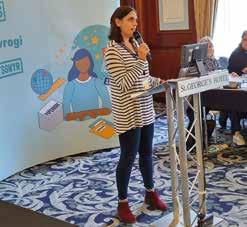

Trafodwyd ymgynghoriad Llywodraeth Cymru ynghylch diwygio’r diwrnod ysgol a hyd tymhorau mewn cynnig gan ardal Blaenau Gwent, a alwodd ar y Llywodraeth i gomisiynu ymchwil yn edrych ar effaith unrhyw newidiadau. Y llynedd, dangosodd arolwg gan NEU Cymru fod 87 y cant o’r aelodau yn pryderu am y diwygiadau posibl.
O dan y rhaglen trawsnewid ADY a gyflwynwyd fis Medi diwethaf, ar ôl dynodi o’r newydd bod gan ddysgwyr anghenion arbennig, bydd y rheini’n cael eu cefnogi drwy system newydd sy’n cyflwyno Cynlluniau Datblygu Unigol. Ond cododd cynigion gan ganghennau Caerffili a Sir Ddinbych bryderon am y llwyth gwaith ychwanegol y mae’r rhaglen a’r Cynlluniau
Datblygu Unigol wedi’i greu. Dywedodd Caerffili y gall llunio un Cynllun Datblygu Unigol gymryd oriau lawer, a bod hynny’n frawychus. Cytunodd y gynhadledd i godi’r mater gyda Llywodraeth Cymru ac i weithio gyda’r undebau addysg eraill i flaenoriaethu amseroedd addysgu athrawon yn yr ystafell ddosbarth.
Dywedodd Stuart Williams, swyddog polisi NEU Cymru: “Mae’r problemau sy’n wynebu aelodau yng Nghymru yn ddigynsail yn

y cyfnod diweddar, ac mae’n hollbwysig bod ein haelodau’n penderfynu pa faterion maen nhw eisiau eu codi gyda Llywodraeth Cymru a gyda Gweinidog y Gymraeg ac Addysg yn enwedig. Rydyn ni wedi cael cyfeiriad polisi clir a fydd yn llywio ein holl drafodaethau yn y dyfodol gyda Llywodraeth Cymru, ac rydyn ni’n edrych ymlaen at weithio’n agos gyda’r Llywodraeth.” n Bydd y gynhadledd nesaf yn cael ei chynnal ym mis Hydref.
addysgu yng nghymru Eich cylchgrawn gan yr Undeb Addysg
Cenedlaethol 1
(Uchod) Cynhaliwyd y gynhadledd yng Ngwesty St George yn Llandudno (Chwith a dde isod) Sophie Toovey, ysgrifennydd cangen Torfaen, a Roger McKenzie o Liberation
Prosiect WULF NEU Cymru yn lansio pecyn cymorth i hybu lles
MAE’R cyntaf mewn cyfres o becynnau cymorth ymarferol i addysgwyr yn canolbwyntio ar ddull ysgol gyfan o hybu lles.
Lansiwyd y pecyn cymorth i hybu lles mewn digwyddiad arbennig yn Stadiwm Dinas Caerdydd ym mis Medi, yng nghwmni sefydliadau a gweithwyr addysg proffesiynol sy’n helpu pobl gyda’u hiechyd meddwl a’u lles. Roedd cynrychiolwyr o awdurdodau lleol a grwpiau’r trydydd sector hefyd yn bresennol er mwyn gallu rhannu eu harbenigedd.
Mae’r pecyn cymorth wedi’i greu gan brosiect Cronfa Ddysgu Undebau Cymru (WULF), sy’n datblygu cyfres o adnoddau ymarferol i helpu ysgolion.
Yn ôl Beth Roberts, cydlynydd y prosiect, nid yw’r pecyn cymorth yn dweud wrth bobl yn union beth i’w wneud. “Mae’n cydnabod bod pob lleoliad addysg yn wahanol, ac mae’n annog gweithio mewn tîm er mwyn cyflwyno newid cadarnhaol,” meddai.
“Nid dweud wrth ysgolion beth i’w
wneud na sut i wneud hynny yw diben y pecyn cymorth. Does dim ‘ateb cyflym’ i wella lles pobl. Bydd angen amser a rheoli pethau’n ofalus er mwyn i’r newidiadau sydd ar y gweill gael effaith a bod yn gynaliadwy.”
Dros y ddwy flynedd a hanner nesaf, mae prosiect WULF yn edrych ymlaen at ddatblygu’r pecyn cymorth ymhellach drwy roi hyfforddiant ac adnoddau, a hynny mewn partneriaeth ag Iechyd Cyhoeddus Cymru, ardaloedd a changhennau NEU Cymru, a rhanddeiliaid eraill.
Ychwanegodd Beth: “Rydyn ni’n croesawu’r cyfleoedd i ymwneud ag unigolion, ysgolion, colegau, awdurdodau lleol a rhanddeiliaid eraill, er mwyn i’r dull ysgol gyfan o weithio ym maes lles fod yn rhywbeth cyfannol a chynhwysol sydd o fudd i bawb.
“Mae prosiect WULF yn datblygu cyfres o adnoddau ymarferol, fel y pecyn cymorth, i helpu ysgolion i ddatblygu eu strategaethau a’u fframweithiau eu hunain wrth gynnal eu
Dyddiadau dysgu i’ch dyddiadur
HYFFORDDIANT I
GYNRYCHIOLWYR
Mae modd mynychu’r cyrsiau sylfaen a’r cyrsiau uwch i gynrychiolwyr, sy’n para tridiau, naill ai mewn un bloc neu fesul modiwl dros dri diwrnod ar wahân. Byddwn ni hefyd yn parhau i ddarparu cyrsiau’n rhithwir, gyda chwe sesiwn wythnosol rhwng 4pm a 6pm ar gyfer pawb sy’n cymryd rhan. Mae’r cyrsiau wedi’u trefnu ar sail y niferoedd ac yn unol â chanllawiau Llywodraeth Cymru, a hynny ar y dyddiadau canlynol.
Cyrsiau sylfaen
1-3 Chwefror – Diplomat Hotel, Llanelli neu-cymru-reps-training-foundationsouth-1-3-feb-23.eventbrite.co.uk 17-19 Mai – Bangor neu-cymru-reps-training-foundationnorth-17-19-may-23.eventbrite.co.uk
Cyrsiau uwch
6-8 Mawrth – Village Hotel, Ewloe neu-cymru-reps-training-advancednorth-6-8-mar-23.eventbrite.co.uk 22-24 Mawrth – Diplomat Hotel, Llanelli neu-cymru-reps-training-advancedsouth-22-24-mar-23.eventbrite.co.uk
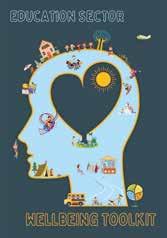
Cyfraith cyflogaeth
24 Ebrill – Caerdydd neu-cymrureps-training-employment-24-4-23. eventbrite.co.uk
Trafod telerau (dileu swyddi)
16 Chwefror – Canolfan Fusnes Conwy, Cyffordd Llandudno neu-cymru-reps-training-negotiatingnorth-16-2-23.eventbrite.co.uk
16 Chwefror – Miskin Manor Hotel, Meisgyn neu-cymru-reps-trainingnegotiating-south-16-2-23. eventbrite.co.uk
harchwiliadau a chynllunio unrhyw newidiadau y gallai fod eu hangen.” n I gael rhagor o wybodaeth am y pecyn cymorth i hybu lles, neu am hyfforddiant, anfonwch e-bost at beth.roberts@neu.org.uk
Os oes gennych chi ddiddordeb mewn bod yn gynrychiolydd gweithle a dilyn un o’n cyrsiau, anfonwch e-bost i cymru.wales@neu.org.uk
Mae gan gynrychiolwyr hawl gyfreithiol i fynd ar y cyrsiau hyn – bydd yr NEU yn helpu unrhyw gynrychiolydd sy’n cael problemau wrth geisio sicrhau amser i ffwrdd o’r gwaith i fod yn bresennol.
RHAGOR O GYRSIAU DRWY WULF
Mae cyrsiau ar gael hefyd drwy brosiect Cronfa Ddysgu Undebau Cymru (WULF). Mae rhestr wedi’i diweddaru o’r pynciau i’w chael yn bit.ly/3VGQwKb ynghyd â gwybodaeth am sut i gofrestru.
Os hoffech chi i’r undeb ystyried trefnu cwrs penodol, anfonwch e-bost naill ai at lisa.williams@neu.org.uk neu at beth.roberts@neu.org.uk
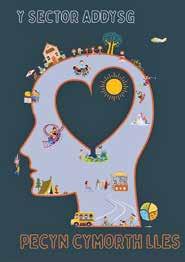
Cadwch olwg ar eich e-bost i weld gwybodaeth am y cyfleoedd hyfforddiant diweddaraf. Hoffwch ni ar Facebook yn facebook.com/neucymrutraining, dilynwch ni ar Twitter drwy @neucymrutrain ac ewch i neu.org.uk/learning-and-events
addysgu yng nghymru Eich cylchgrawn gan yr Undeb Addysg Cenedlaethol
2 Newyddion
‘Agorodd Holly fyd ein mab’
ROEDD Holly Gordon yn hyfforddi i fod yn athrawes ddrama pan aeth hi ar brofiad gwaith i ysgol sy’n arbenigo mewn awtistiaeth –wythnos a newidiodd lwybr ei gyrfa.

A hithau bellach yn ei thrydedd blwyddyn fel athrawes, mae hi’n arwain tîm sy’n gweithio gyda phlant rhwng wyth a 12 oed nad ydyn nhw’n siarad, a hynny yn Ysgol Bryn Derw yng Nghasnewydd, Gwent. Meddai: “Alla’ i ddim mynegi mewn geiriau faint rwy’n mwynhau’r swydd hon.”
Yn sgil ei brwdfrydedd a’i hymroddiad i’w gwaith, enillodd Holly y wobr am Athro Newydd Eithriadol y Flwyddyn yng Ngwobrau Addysgu Proffesiynol Cymru 2022, a hynny’n ei dro yn ei harwain i rownd derfynol Gwobrau Addysg Cenedlaethol Pearson ym mis Tachwedd.
‘Mae’r disgyblion yn cyrraedd gyda gwên ac yn gadael yn hapusach fyth’ Wrth ei henwebu am y wobr Gymreig, disgrifiodd ei phennaeth, Richard Drew, sut roedd Holly wedi gweddnewid profiadau addysg anodd disgyblion yn y gorffennol, gan eu helpu nhw i gael modd i fyw wrth ddysgu.
“Maen nhw’n cyrraedd bob dydd gyda gwên ar eu hwynebau, ac maen nhw’n
gadael bob dydd yn hapusach fyth,” meddai. Dechreuodd Holly weithio yn Ysgol Bryn Derw yn ystod y pandemig, pan oedd yr ysgolion ar gau a’r addysgu’n digwydd ar-lein. Mae hi’n esbonio sut aeth hi ati i greu fideos, nid yn gymaint i’r disgyblion, ond i’r rhieni, gan ddisgrifio caneuon y gallen nhw’u canu
a gweithgareddau y gallen nhw’u gwneud i ysgogi’r plant.
Mae un rhiant yn disgrifio sut gwnaeth Holly eu helpu nhw gyda’u mab: “Fe wnaeth hi agor ei fyd inni, oherwydd roedden ni wedi ymlâdd yn ceisio dod o hyd i ffyrdd i’w agor a’i ehangu.”
Rhaglen ADY yn ‘rhoi disgyblion yn gyntaf’
Mae Ysgol Bryn Derw yn ysgol arbennig sy’n cael ei chynnal gan yr awdurdod lleol, a hynny i blant sydd ag awtistiaeth ac anawsterau dysgu cysylltiedig. Dyma’r unig ysgol o’i math yn rhanbarth Gwent. Yn ôl Holly, roedd llawer o’r dull newydd o ganolbwyntio ar y disgybl a geir yn y rhaglen gweddnewid anghenion dysgu ychwanegol (ADY) eisoes wedi’i wreiddio yng ngwaith yr ysgol ers iddi agor yn 2017. “Mae’r ffordd mae hynny’n gweithio, sef rhoi disgyblion yn gyntaf, yn golygu bod eu hanghenion sylfaenol yn cael sylw – mae’n gwneud synnwyr,” mae hi’n esbonio.
Mae Holly bellach wedi ysgwyddo cyfrifoldebau hyfforddi a dysgu dros ddau gydweithiwr, ac mae hi’n mentora dau athro newydd gymhwyso.
A hyd yn oed ar ôl diwrnod caled iawn, mae hi’n hoff iawn o’i swydd: “Mae’r cyfan yn talu ar ei ganfed, ac rwy’n cael modd i fyw.”
Pleidlais am gyflogau: y cyfle olaf i bostio
GYDA staff cymorth yn gorfod defnyddio banciau bwyd mewn rhai ysgolion, ac athrawon yn gadael y proffesiwn rif y gwlith, mae NEU Cymru yn rhybuddio Llywodraeth Cymru rhag methu llawn sylweddoli pa mor gryf yw teimladau addysgwyr.
Yn dilyn pleidlais ragarweiniol ysgubol ym mis Hydref, aeth yr undeb yn ei flaen gyda phleidlais ffurfiol yn gofyn i athrawon ac aelodau o staff cymorth: “A ydych yn barod i gymryd rhan mewn streic er mwyn hyrwyddo’r anghydfod hwn?” Mae’r bleidlais yn cau ar 13 Ionawr.
Mae pob anghydfod yn ymwneud â’r methiant i ymrwymo i roi codiad cyflog uwch na chwyddiant sydd wedi’i ariannu’n llawn
(yn unol â mesuriadau’r Mynegai Prisiau Manwerthu ym mis Medi 2022).
Os nad yw’r codiad cyflog wedi’i ariannu’n llawn, rhybuddiodd David Evans, ysgrifennydd NEU Cymru, y bydd mwy o doriadau i addysg plant wrth i awdurdodau lleol ei chael hi’n anodd cydbwyso’r llyfrau.
“Rhaid inni sicrhau bod digon o arian wedi’i ddatganoli o San Steffan i Fae Caerdydd er mwyn ariannu codiadau cyflog athrawon ac addysg yn gyffredinol. Mae’r undeb eisiau gweithio gyda Llywodraeth Cymru i wneud hynny’n realiti a hithau’n argyfwng ar gyllid addysg yma yng Nghymru.”
Dywedodd fod yr aelodau’n gyndyn o fynd ar streic, ond ychwanegodd: “Ddylai neb fethu llawn sylweddoli pa mor gryf yw’r teimladau. Mae cyflogau, ynghyd â llwyth gwaith, wrth wraidd yr argyfwng recriwtio
a chadw, gyda 29 y cant o athrawon yng Nghymru yn gadael y proffesiwn o fewn y bum mlynedd gyntaf yn addysgu. Ac rydyn ni bellach yn gweld staff cymorth ysgolion yn defnyddio banciau bwyd hefyd. Dylai hyn fod yn achos pryder garw i Lywodraeth Cymru –ac mae angen iddi weithredu nawr.”
Mae athrawon wedi colli 20 y cant mewn termau real ers 2010, ac yn yr un cyfnod mae staff cymorth wedi colli 27 y cant.
Ychwanegodd David: “Mae ein haelodau yn dymuno bod yn yr ysgol, yn addysgu plant. Ond maen nhw wedi’u tanbrisio am gyfnod rhy hir o lawer, ac amharodrwydd Llywodraeth Cymru i ariannu’n llawn y codiad cyflog annigonol yn 2022/23 yw’r halen ar y briw. Rydyn ni’n ailadrodd ein parodrwydd i gwrdd â Llywodraeth Cymru er mwyn dod o hyd i ateb go iawn i dros ddegawd o ostyngiadau cyflog.”
addysgu yng nghymru Eich cylchgrawn gan yr Undeb Addysg
3
Cenedlaethol
Wedi methu rhywbeth? Darllenwch hen rifynnau o Addysgu yng Nghymru, yn Gymraeg ac yn Saesneg, yn neu.org.uk/educate-wales
Holly gyda’i gwobr
Newyddion
Yma i helpu
FEL yr undeb addysg mwyaf, gall NEU Cymru roi gwasanaeth heb ei ail i’w aelodau. Mae ein tîm proffesiynol yma i ddefnyddio’u harbenigedd er mwyn helpu ein rhwydwaith o gynrychiolwyr gweithle ac ysgrifenyddion rhanbarthau a changhennau.

Os oes gennych chi broblem yn y gwaith neu i gael rhagor o wybodaeth am ein gwasanaethau i aelodau, cysylltwch â’r canlynol: n cynrychiolydd eich gweithle n ysgrifennydd eich cangen n AdviceLine n Swyddfa NEU Cymru.
NEU Cymru
Ty Sinnott, 18 Neptune Court, Vanguard Way, Caerdydd CF24 5PJ
Ffôn: 029 2049 1818 E-bost: cymru.wales@neu.org.uk
Ysgrifennydd Cymru: David Evans Uwch Swyddogion Cymru: Gareth Lloyd, Debbie Scott
Uwch Swyddog Polisi Cymru: Mary van den Heuvel
Trefnydd y Gogledd: Cai Jones
Trefnydd y De: Robert Goddard
Cyfreithiwr Cymru: Angharad Booker Aelodau Gweithredol: Máiréad Canavan, Elizabeth McLean, Hannah O’Neill
Prif Swyddfa
Yr Undeb Addysg Cenedlaethol, Hamilton House, Mabledon Place, Llundain WC1H 9BD
Ffôn: 020 7388 6191
Gwefan: neu.org.uk
Llywydd: Louise Atkinson
Cyd-ysgrifenyddion Cyffredinol: Mary Bousted a Kevin Courtney
Cyfieithiad gan Rhys Iorwerth Cyf rhysiorwerth@hotmail.com
Trechu tlodi gyda’n gilydd yng Nghymru
MAE NEU Cymru wedi ymuno â’r Grŵp Gweithredu ar Dlodi Plant a Children North East i greu canllaw i helpu i wneud dysgu’n fwy hygyrch i blant a theuluoedd sy’n byw mewn tlodi yng Nghymru.
Mae’r canllaw – Trechu tlodi gyda’n gilydd – yn cynnwys adrannau sydd wedi’u hysgrifennu gan arbenigwyr addysg a thlodi o’r tri sefydliad, gan ddefnyddio gwersi sydd wedi’u dysgu ac enghreifftiau o’u prosiectau a’u gwaith ymchwil cyfredol.
Mae’n cynnwys safbwyntiau a phrofiadau plant, pobl ifanc a’u teuluoedd, ynghyd â chyfraniadau gan aelodau’r NEU o bob rhan o Gymru, ymchwilwyr rheng flaen mewn ysgolion, cynghorwyr ymarfer, arbenigwyr cyfathrebu ac arbenigwyr polisi.
Mewn digwyddiad yn y Senedd i lansio’r canllaw, dywedodd un o aelodau’r NEU fod disgyblion yn ei hysgol yn wynebu lefelau o dlodi a oedd yn “dorcalonnus i’r disgyblion a’r staff”.
Gan ddisgrifio’r amrywiaeth o heriau mae plant sydd mewn teuluoedd
Grwp llywio staff cymorth
MAE NEU Cymru yn rhan o grwp llywio sy’n ceisio creu tegwch ar gyfer telerau ac amodau staff cymorth drwy Gymru. Mae staff cymorth yn aml ar gontractau rhan amser a chontractau tymor yn unig.
Mae’r grwp, sydd wedi’i sefydlu gan Lywodraeth Cymru, yn cynnwys cynrychiolwyr o’r undebau llafur, Cyngor y Gweithlu Addysg, awdurdodau lleol ac aelodau o’r gweithlu addysg.
NEU Cymru yn croesawu’r cyhoeddiad am brydau ysgol am ddim
MAE cynlluniau gan Jeremy Miles, y Gweinidog Addysg, i barhau i roi prydau ysgol am ddim tan wyliau hanner tymor mis Chwefror, ac yn ystod y gwyliau, wedi’u croesawu.
Wrth i gostau byw gynyddu’n aruthrol, dywedodd David Evans, ysgrifennydd NEU Cymru, ei bod hi’n hollbwysig bod plant yn cael pryd iach o fwyd i hybu’u lles.
Ychwanegodd: “Mae i’w groesawu hefyd bod y gweinidog wedi ailadrodd ymrwymiad Llywodraeth Cymru i roi prydau ysgol am ddim i bawb erbyn
addysgu yng nghymru Eich cylchgrawn gan yr Undeb Addysg Cenedlaethol
ar incwm isel yn eu hwynebu, dywedodd: “All plant ddim bod yn awchus i ddysgu os ydyn nhw’n llwgu. Dylai ysgolion fod yn llawn sŵn plant yn chwerthin, yn hytrach na sŵn griddfan boliau gwag. Mae angen inni sicrhau nad oes dim yn rhwystro disgyblion rhag dysgu na ninnau rhag addysgu.”
Yn ôl Ellie Harwood, rheolwr datblygu Cymru ar gyfer Cost y Diwrnod Ysgol, sef prosiect y Grŵp Gweithredu ar Dlodi Plant yn y Deyrnas Unedig: “Rydyn ni’n gwybod bod ysgolion wastad yn gweithio’n galed i helpu plant sy’n byw mewn tlodi. Rydyn ni wedi creu’r adnodd newydd hwn drwy wrando ar beth sy’n helpu pobl fwyaf, yn ôl yr hyn y mae plant, ysgolion a theuluoedd yn ei ddweud wrthyn ni. Gobeithio y bydd yn ganllaw defnyddiol i bob ysgol sy’n awyddus i gefnogi’i chymuned drwy’r cyfnod anodd hwn.”
mis Medi 2023. Rydyn ni’n credu y bydd hyn yn hollbwysig er mwyn helpu plant i ddysgu, a sicrhau bod modd i blant gael pryd poeth o fwyd bob dydd.”
Dywedodd y byddai’r undeb yn croesawu mynd gam ymhellach gyda’r ymrwymiadau hyn, gan gynnwys rhoi prydau am ddim i blant ysgolion uwchradd a rhoi cymorth i deuluoedd yn ystod y gwyliau y tu hwnt i fis Chwefror.
Cymwys i’r dyfodol
TREULIODD Cymwysterau Cymru, y corff rheoleiddio, wythnosau lawer yr hydref diwethaf yn ymgynghori ynghylch cynigion ar gyfer 26 o gymwysterau TGAU a chymwysterau cysylltiedig newydd eraill.
Hwn yw’r sefydliad annibynnol sy’n gyfrifol am reoleiddio cymwysterau cyffredinol a galwedigaethol. Dywedodd Cymwysterau Cymru ei fod yn hyderus y byddai cynnwys a threfniadau asesu’r cymwysterau yn helpu ysgolion i wneud Cwricwlwm newydd Cymru yn llwyddiant ac i baratoi dysgwyr at fywyd, dysgu a gwaith. Bydd Cymwysterau Cymru yn cyflwyno’i ganfyddiadau ac yn gofyn am farn aelodau eto yn gynnar yn 2023.
4
% @ £ £/ x + x xx + =+ pover
Trechu tlodi gyda'n gilydd Creu gwasanaethau tosturiol yn yr ysgol i helpu teuluoedd sy’n byw mewn tlodi
^ ^ ^








































 By
By




 Teachers Building Society, Allenview House, Hanham Road, Wimborne, Dorset BH21 1AG. Authorised by the Prudential Regulation Authority and regulated by the Financial Conduct Authority and the Prudential Regulation Authority (Reg No. 156580)
Teachers Building Society, Allenview House, Hanham Road, Wimborne, Dorset BH21 1AG. Authorised by the Prudential Regulation Authority and regulated by the Financial Conduct Authority and the Prudential Regulation Authority (Reg No. 156580)


 PHOTO by Stuart Boulton stuartboultonphotography.com
PHOTO by Stuart Boulton stuartboultonphotography.com





 Words by Michael Rosen Illustration by Dan Berry
Words by Michael Rosen Illustration by Dan Berry

























































 Please write The editor welcomes your letters but reserves the right to edit them. Write to Letters, Educate, NEU, Hamilton House, Mabledon Place, London WC1H 9BD or email educate@neu.org.uk Please note we cannot print letters sent in without a name and postal address (or NEU membership number), although we can withhold details from publication if you wish.
Please write The editor welcomes your letters but reserves the right to edit them. Write to Letters, Educate, NEU, Hamilton House, Mabledon Place, London WC1H 9BD or email educate@neu.org.uk Please note we cannot print letters sent in without a name and postal address (or NEU membership number), although we can withhold details from publication if you wish.





















 Teachers Building Society, Allenview House, Hanham Road, Wimborne, Dorset BH21 1AG. Authorised by the Prudential Regulation Authority and regulated by the Financial Conduct Authority and the Prudential Regulation Authority (Reg No. 156580)
Teachers Building Society, Allenview House, Hanham Road, Wimborne, Dorset BH21 1AG. Authorised by the Prudential Regulation Authority and regulated by the Financial Conduct Authority and the Prudential Regulation Authority (Reg No. 156580)





























